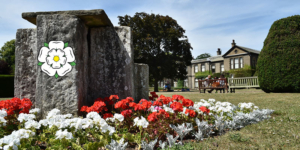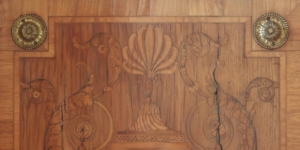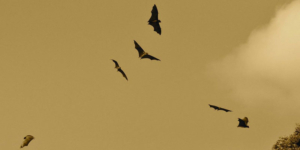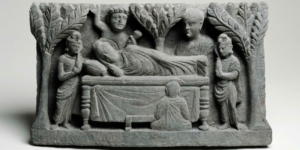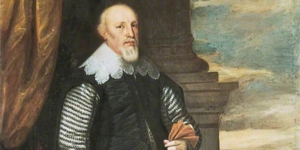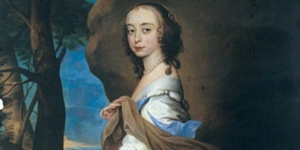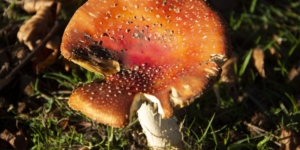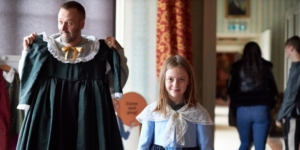What’s on at Leeds Museums & Galleries
Search our What’s on to find exhibitions, creative workshops, talks and tours across our Leeds Museums and Galleries venues.
I am interested in
Revive, Repair, Re-use: Stories of Sustainability
Venue: Abbey House Museum
Price: Included in admission
A display co-curated with volunteers about the practices and effects of sustainability in Leeds.
Overlooked Legacies
Venue: Leeds City Museum
Price: Free
Overlooked Legacies is a free extended display of stories which we could not fit into the Overlooked exhibition.
Engineery
Venue: Leeds Industrial Museum
Price: Included in admission
A new exhibition opening on 27 October, celebrating the life and legacy of John Smeaton and civil engineering in its many forms.
The Power of Persuasion
Venue: Abbey House Museum
Price: Included in admission
A peep into the history of advertising. This exhibition takes a nostalgic and critical look at the history of advertising and branding in Leeds and beyond.
Hidden Temple Newsam Tour
Venue: Temple Newsam
Price: £3.50 plus General Admisson
Tue, Sat, Sun 11am & 2pm
Go beyond the ropes, find out about life below stairs, see places exclusive to our hidden tour and discover some secrets along the way!
Art on a Chair
Venue: Leeds City Museum
Price: Free
Art on a Chair is an upcycling project curated by students from Swarthmore Education Centre, turning old furniture into unique works of art.
‘An Axis of Abstraction’: Art in Cornwall and Yorkshire – Then and Now
Venue: Leeds Art Gallery
Price: Free
Exploring Modernist artist practices in West Cornwall and West Yorkshire.
Hong Kong Freedom Fighters
Venue: Leeds City Museum
Price: Free
This display documents a community navigating the currents of history, resilience, and the relentless pursuit of freedom.
Waddingtons and MONOPOLY Display
Venue: Leeds City Museum
Price: Free
To coincide with MONOPOLY Leeds Takeover, visit a special permanent display exploring the story of Waddingtons and MONOPOLY.
Arbeau Dancers
Venue: Temple Newsam
Price: Included in admission
Please check with us first to confirm the group are performing.
Watch our dancers in residence rehearse in the Picture Gallery, with a repertoire spanning 500 years of historic dance!
Let Us See You: It’s Not You, It’s Me
Venue: Leeds Art Gallery
Price: Free
10:30 am - 12:00 pm
Workshop for artists, talking with curators about the process of selecting works to show in galleries with a chance for group discussion.
Rory’s Saturday Club
Venue: Leeds City Museum
Price: Free
11:00 am - 12:15 pm
Looking for something creative to do with kids in the city? Come down to Leeds City Museum for our craft sessions for families.
Kirkstall Abbey Markets
Venue: Kirkstall Abbey
Price: Free
11:00 am - 3:00 pm
Sample delicious local food, drink, and crafts from Yorkshire in the beautiful surroundings of Kirkstall Abbey.
Modern Art at Temple Newsam: Revisiting Philip Hendy’s Wartime Exhibitions
Venue: Leeds Art Gallery
Price: £12.50, £10 for Leeds Art Fund members
2:00 pm - 4:00 pm
This talk will retrace the history of the ground-breaking exhibitions of modern art held at Temple Newsam during the wartime period.
Historic Music Day
Venue: Temple Newsam
Price: Included in admission
10:30 am - 4:30 pm
Join us to hear a range of historic music performances from in the magnificent setting of Temple Newsam house.
Care Creatives
Venue: Leeds Art Gallery
Price: Free
11:00 am - 1:00 pm
Creative workshops inspired by our exhibitions and collections, designed for young adults aged 16-24 with lived experience of the care system.
Stitch Art
Venue: Leeds Art Gallery
Price: Free
10:30 am - 12:30 pm
Take a closer look at artworks in our collections and exhibitions and notice the textures, colours and shapes to help inspire your own textile art.
Keep Crafting
Venue: Leeds City Museum
Price: Free
3:00 pm - 4:00 pm
If you enjoy craft making with other like-minded people, come along to our free craft making session on the first Wednesday of each month.
Mother of the Revolution
Venue: Leeds Industrial Museum
Price: £15
6:00 pm - 8:00 pm
Come learn the story of Kirkstall Forge through local hero Betty Beecroft.
Living with Death
Venue: Leeds City Museum
Price: Free
Living with Death is an exhibition exploring death, dying and bereavement. Adult and family events will run throughout the year.
Tiny Tigers
Venue: Leeds City Museum
Price: Free
10:00 am - 11:45 am
Looking for something creative to do with kids in the city? Come down to Leeds City Museum for our Tiny Tigers craft sessions for under 5s and their carers.
Sociable History Club: ‘The Great Mortality – Black Death in Yorkshire 1348-1350
Venue: Leeds City Museum
Price: Free
10:30 am - 12:00 pm
Come along to our free monthly talks for adults, with guest speakers and a different theme each time.
Meet & Make
Venue: Leeds Art Gallery
Price: Free
1:00 pm - 3:00 pm
Free creative, playful crafting sessions for adults with the opportunity to make something in response to our exhibitions and displays.
Leeds City Museum Community Choir
Venue: Leeds City Museum
Price: Free
2:30 pm - 4:00 pm
Join our monthly community choir with Leeds City Museum. Free and open to all.
Arbeau Dancers
Venue: Temple Newsam
Price: Included in admission
Please check with us first to confirm the group are performing.
Watch our dancers in residence rehearse in the Picture Gallery, with a repertoire spanning 500 years of historic dance!
In Search of the Tudor House Tour
Venue: Temple Newsam
Price: £5
11am & 2pm
Join this tour to look carefully and discover evidence of the original Tudor building beneath 500 years of Temple Newsam's development.
Rory’s Saturday Club
Venue: Leeds City Museum
Price: Free
11:00 am - 12:15 pm
Looking for something creative to do with kids in the city? Come down to Leeds City Museum for our craft sessions for families.
Summer Open Day
Venue: Temple Newsam
Price: Pay As You Feel
11:00 am - 3:00 pm
On this special open day, you can explore Temple Newsam house and Farm and Pay As You Feel, with fun activities for all the family too!
1152 Club: Talks at Abbey House Museum
Venue: Abbey House Museum
Price: Free
10:00 am - 11:15 am
The 1152 Club is a history and heritage talks series for people aged 55 and over, held at Abbey House Museum.
Temple Newsam the Art Gallery Tour
Venue: Temple Newsam
Price: £5
11am & 2pm
See some of the highlights of Temple Newsam's extensive art collection and hear stories behind the artworks on this tour.
Curator Tour: Living with Death
Venue: Leeds City Museum
Price: FREE
2:00 pm
Take a curator tour of the Living with Death exhibition at Leeds City Museum.
Tiny Tigers
Venue: Leeds City Museum
Price: Free
10:00 am - 11:45 am
Looking for something creative to do with kids in the city? Come down to Leeds City Museum for our Tiny Tigers craft sessions for under 5s and their carers.
Meet & Make
Venue: Leeds Art Gallery
Price: Free
1:00 pm - 3:00 pm
Free creative, playful crafting sessions for adults with the opportunity to make something in response to our exhibitions and displays.
Arbeau Dancers
Venue: Temple Newsam
Price: Included in admission
Please check with us first to confirm the group are performing.
Watch our dancers in residence rehearse in the Picture Gallery, with a repertoire spanning 500 years of historic dance!
Rory’s Saturday Club
Venue: Leeds City Museum
Price: Free
11:00 am - 12:15 pm
Looking for something creative to do with kids in the city? Come down to Leeds City Museum for our craft sessions for families.
Nothing Lasts Forever: Peter Mitchell
Venue: Leeds Art Gallery
Price: Free
Leeds Art Gallery is thrilled to present a major retrospective of British documentary photographer Peter Mitchell.
Tiny Tigers
Venue: Leeds City Museum
Price: Free
10:00 am - 11:45 am
Looking for something creative to do with kids in the city? Come down to Leeds City Museum for our Tiny Tigers craft sessions for under 5s and their carers.
Meet & Make
Venue: Leeds Art Gallery
Price: Free
1:00 pm - 3:00 pm
Free creative, playful crafting sessions for adults with the opportunity to make something in response to our exhibitions and displays.
Entangled
Venue: Leeds Industrial Museum
Price: Included as part of entry ticket (pre-booking recommended)
A new exhibition with the International Felt Maker's Association Region 10
Arbeau Dancers
Venue: Temple Newsam
Price: Included in admission
Please check with us first to confirm the group are performing.
Watch our dancers in residence rehearse in the Picture Gallery, with a repertoire spanning 500 years of historic dance!
Rooftop Experience
Venue: Temple Newsam
Price: £25
11am & 2pm
Explore Temple Newsam House and Estate as you’ve never seen them before with this unique rooftop experience tour.
Rory’s Saturday Club
Venue: Leeds City Museum
Price: Free
11:00 am - 12:15 pm
Looking for something creative to do with kids in the city? Come down to Leeds City Museum for our craft sessions for families.
Rooftop Experience
Venue: Temple Newsam
Price: £25
11am & 2pm
Explore Temple Newsam House and Estate as you’ve never seen them before with this unique rooftop experience tour.
Curator Tour: Living with Death
Venue: Leeds City Museum
Price: FREE
11:00 am
Take a curator tour of the Living with Death exhibition at Leeds City Museum.
NikNak’s ‘Inner Ireti’ – Including Installation Launch
Venue: Leeds Art Gallery
Price: Free
Opening talk 1-1:30pm 23 May
NikNak presents an exclusive audio installation at Leeds Art Gallery that merges jazz with electronic & experimental music, as part of Leeds Jazz Festival.
Tiny Tigers
Venue: Leeds City Museum
Price: Free
10:00 am - 11:45 am
Looking for something creative to do with kids in the city? Come down to Leeds City Museum for our Tiny Tigers craft sessions for under 5s and their carers.
May Half Term: Find Your Happy
Venue: Temple Newsam
Price: Included in admission
Find your happy at Temple Newsam this May half term. Take part in fun family crafts that will make you feel good and put a smile on your face!
May Half Term: Around the World in 80 Stories
Venue: Lotherton
Price: Included in admission (pre-booking recommended)
Join us for storytelling and adventure at Lotherton this half term.
Arbeau Dancers
Venue: Temple Newsam
Price: Included in admission
Please check with us first to confirm the group are performing.
Watch our dancers in residence rehearse in the Picture Gallery, with a repertoire spanning 500 years of historic dance!
Rory’s Saturday Club
Venue: Leeds City Museum
Price: Free
11:00 am - 12:15 pm
Looking for something creative to do with kids in the city? Come down to Leeds City Museum for our craft sessions for families.
Abbey House Craft Fayre
Venue: Abbey House Museum
Price: Free
11:00 am - 3:00 pm
Come along to Abbey House Museum's indoor craft fayre and support local Yorkshire-owned. Art, gifts, homeware and more!
Let Us See You: Give Us A Look
Venue: Leeds Art Gallery
Price: Free
11:00 am - 12:30 pm
Workshop for artists to help you think about how to write about your creative practice. Bring your art and show and tell with peers.
West Riding to West Africa
Venue: Leeds Industrial Museum
Price: Included with admission
12:00 pm - 5:00 pm
Join us for a family-friendly day exploring the incredible story of how engineering linked West Yorkshire and Sierra Leone in West Africa.
May Half Term: Fun with Felt
Venue: Leeds Industrial Museum
Price: Included with admission
Get creative with family felt activities, spot the felted animals around the museum, and catch a film in our tiny cinema.
May Half Term: Build a Bird
Venue: Leeds City Museum
Price: Free
10am - 12pm & 1 - 3pm
Learn about endangered birds while you colour them in, create an owl out of origami, or collage your own bird and design its habitat.
Half Term Store Tour
Venue: Leeds Discovery Centre
Price: Free
11am - 12pm & 1 - 2pm
Join us this May half term for a special behind the scenes tour of the Leeds Museums and Galleries collection store.
May Half Term: Shells, Sea Creatures & Slime
Venue: Leeds Discovery Centre
Price: Free
10am - 12pm & 1 - 3pm
Come and find out about oysters, snails, squid, shells, octopuses, limpets in this fun family workshop during half term.
Tea & Talk Club: The Walmsleys of Robin Hood’s Bay
Venue: Temple Newsam
Price: Free
11:00 am - 12:00 pm
On the last Wednesday of every month, our friendly Tea & Talk Club meets for an hour of sociable history in the grand surroundings of Temple Newsam House.
Sensory Room for Families with Additional Needs
Venue: Leeds City Museum
Price: Free
10.30 - 11.30am & 1 - 2pm
Pop-up sensory room for families with SEND, neurodiversity, autism and/or anxiety who might find a visit to the museum overwhelming.
Half Term Store Tour
Venue: Leeds Discovery Centre
Price: Free
11am - 12pm & 1 - 2pm
Join us this May half term for a special behind the scenes tour of the Leeds Museums and Galleries collection store.
Tiny Tigers
Venue: Leeds City Museum
Price: Free
10:00 am - 11:45 am
Looking for something creative to do with kids in the city? Come down to Leeds City Museum for our Tiny Tigers craft sessions for under 5s and their carers.
Half Term Store Tour
Venue: Leeds Discovery Centre
Price: Free
11am - 12pm & 1 - 2pm
Join us this May half term for a special behind the scenes tour of the Leeds Museums and Galleries collection store.
Volsung Vikings
Venue: Lotherton
Price: Included in admission (pre-booking recommended)
Dust off your chainmail...the Volsung Vikings will be invading Lotherton for a weekend of historic re-enactment and family fun!
Leeds Wool Festival
Venue: Leeds Industrial Museum
Price: Adult £4.74 / Child £2.65
10:00 am - 5:00 pm
Come along to Leeds Wool Festival to celebrate all things woolly, right inside what was once the world's largest woollen mill.
Arbeau Dancers
Venue: Temple Newsam
Price: Included in admission
Please check with us first to confirm the group are performing.
Watch our dancers in residence rehearse in the Picture Gallery, with a repertoire spanning 500 years of historic dance!
Women of Temple Newsam Tour
Venue: Temple Newsam
Price: £5
11am & 2pm
On this tour, find out about some of the important and powerful women who have owned or lived at Temple Newsam.
Rory’s Saturday Club
Venue: Leeds City Museum
Price: Free
11:00 am - 12:15 pm
Looking for something creative to do with kids in the city? Come down to Leeds City Museum for our craft sessions for families.
Religion at Temple Newsam Tour
Venue: Temple Newsam
Price: £5
11am & 2pm
Discover how the religious beliefs of past owners have shaped Temple Newsam house and its interior design on this expert tour.
Talk: The Modern Day Zoo and Why it is Important
Venue: Lotherton
Price: £11 (includes Lotherton Estate entry)
2:00 pm
In this talk, Wildlife World's Zoo Manager Daniel Messer will share the stories of working in a zoo and how they have changed over time.
1152 Club: Talks at Abbey House Museum
Venue: Abbey House Museum
Price: Free
10:00 am - 11:15 am
The 1152 Club is a history and heritage talks series for people aged 55 and over, held at Abbey House Museum.
Stitch Art
Venue: Leeds Art Gallery
Price: Free
10:30 am - 12:30 pm
Take a closer look at artworks in our collections and exhibitions and notice the textures, colours and shapes to help inspire your own textile art.
Keep Crafting
Venue: Leeds City Museum
Price: Free
3:00 pm - 4:00 pm
If you enjoy craft making with other like-minded people, come along to our free craft making session on the first Wednesday of each month.
Tiny Tigers
Venue: Leeds City Museum
Price: Free
10:00 am - 11:45 am
Looking for something creative to do with kids in the city? Come down to Leeds City Museum for our Tiny Tigers craft sessions for under 5s and their carers.
Sociable History Club
Venue: Leeds City Museum
Price: Free
10:30 am - 12:00 pm
Come along to our free monthly talks for adults, with guest speakers and a different theme each time.
Curator Tour: Living with Death
Venue: Leeds City Museum
Price: FREE
12:15 pm
Take a curator tour of the Living with Death exhibition at Leeds City Museum.
Leeds City Museum Community Choir
Venue: Leeds City Museum
Price: Free
2:30 pm - 4:00 pm
Join our monthly community choir with Leeds City Museum. Free and open to all.
Arbeau Dancers
Venue: Temple Newsam
Price: Included in admission
Please check with us first to confirm the group are performing.
Watch our dancers in residence rehearse in the Picture Gallery, with a repertoire spanning 500 years of historic dance!
Rory’s Saturday Club
Venue: Leeds City Museum
Price: Free
11:00 am - 12:15 pm
Looking for something creative to do with kids in the city? Come down to Leeds City Museum for our craft sessions for families.
Smeaton at Temple Newsam Walk
Venue: Temple Newsam
Price: £5
11:00 am
Join this tour to search the grounds of Temple Newsam for remaining evidence of Smeaton’s unique pump and well system.
Tiny Tigers
Venue: Leeds City Museum
Price: Free
10:00 am - 11:45 am
Looking for something creative to do with kids in the city? Come down to Leeds City Museum for our Tiny Tigers craft sessions for under 5s and their carers.
1940s Weekend
Venue: Lotherton
Price: Included as part of entry ticket (pre-booking recommended)
Come along to our 1940s weekend at Lotherton with vintage singer Miss Marina Mae, outdoor activities and garden games!
Arbeau Dancers
Venue: Temple Newsam
Price: Included in admission
Please check with us first to confirm the group are performing.
Watch our dancers in residence rehearse in the Picture Gallery, with a repertoire spanning 500 years of historic dance!
Rory’s Saturday Club
Venue: Leeds City Museum
Price: Free
11:00 am - 12:15 pm
Looking for something creative to do with kids in the city? Come down to Leeds City Museum for our craft sessions for families.
Curator Tour: Living with Death
Venue: Leeds City Museum
Price: FREE
2:00 pm
Take a curator tour of the Living with Death exhibition at Leeds City Museum.
Tiny Tigers
Venue: Leeds City Museum
Price: Free
10:00 am - 11:45 am
Looking for something creative to do with kids in the city? Come down to Leeds City Museum for our Tiny Tigers craft sessions for under 5s and their carers.
Arbeau Dancers
Venue: Temple Newsam
Price: Included in admission
Please check with us first to confirm the group are performing.
Watch our dancers in residence rehearse in the Picture Gallery, with a repertoire spanning 500 years of historic dance!
Rory’s Saturday Club
Venue: Leeds City Museum
Price: Free
11:00 am - 12:15 pm
Looking for something creative to do with kids in the city? Come down to Leeds City Museum for our craft sessions for families.
Let Us See You: Gladiator, Are You Ready?
Venue: Leeds Art Gallery
Price: Free
11:00 am - 12:30 pm
Workshop for artists all about networking. Come and chat with other artists, creatives, and curators by the art of random selection.
Focus Tour: Archaeology
Venue: Leeds City Museum
Price: FREE
12:30 pm - 1:30 pm
Take a focus tour of the archaeology objects on display in the Living with Death exhibition.
Tea & Talk Club: Leeds A-Z Part II
Venue: Temple Newsam
Price: Free
11:00 am - 12:00 pm
On the last Wednesday of every month, our friendly Tea & Talk Club meets for an hour of sociable history in the grand surroundings of Temple Newsam House.
An Eye for Attire – Fashion in Portraits Tour
Venue: Temple Newsam
Price: £5
11am & 2pm
Discover the symbolism and stories of the clothes people wore in the past, through a tour of Temple Newsam's portraits.
Tiny Tigers
Venue: Leeds City Museum
Price: Free
10:00 am - 11:45 am
Looking for something creative to do with kids in the city? Come down to Leeds City Museum for our Tiny Tigers craft sessions for under 5s and their carers.
Arbeau Dancers
Venue: Temple Newsam
Price: Included in admission
Please check with us first to confirm the group are performing.
Watch our dancers in residence rehearse in the Picture Gallery, with a repertoire spanning 500 years of historic dance!
Summer Picnic
Venue: Temple Newsam
Price: £5
11:00 am - 3:00 pm
Bring a picnic and enjoy a special day out at Temple Newsam with crafts, refreshments, and entertainment for all the family.
Rory’s Saturday Club
Venue: Leeds City Museum
Price: Free
11:00 am - 12:15 pm
Looking for something creative to do with kids in the city? Come down to Leeds City Museum for our craft sessions for families.
Kirkstall Abbey Markets
Venue: Kirkstall Abbey
Price: Free
11:00 am - 3:00 pm
Sample delicious local food, drink, and crafts from Yorkshire in the beautiful surroundings of Kirkstall Abbey.
Stitch Art
Venue: Leeds Art Gallery
Price: Free
10:30 am - 12:30 pm
Take a closer look at artworks in our collections and exhibitions and notice the textures, colours and shapes to help inspire your own textile art.
Keep Crafting
Venue: Leeds City Museum
Price: Free
3:00 pm - 4:00 pm
If you enjoy craft making with other like-minded people, come along to our free craft making session on the first Wednesday of each month.
Tiny Tigers
Venue: Leeds City Museum
Price: Free
10:00 am - 11:45 am
Looking for something creative to do with kids in the city? Come down to Leeds City Museum for our Tiny Tigers craft sessions for under 5s and their carers.
Sociable History Club
Venue: Leeds City Museum
10:30 am - 12:00 pm
Come along to our free monthly talks for adults, with guest speakers and a different theme each time.
Leeds City Museum Community Choir
Venue: Leeds City Museum
Price: Free
2:30 pm - 4:00 pm
Join our monthly community choir with Leeds City Museum. Free and open to all.
Arbeau Dancers
Venue: Temple Newsam
Price: Included in admission
Please check with us first to confirm the group are performing.
Watch our dancers in residence rehearse in the Picture Gallery, with a repertoire spanning 500 years of historic dance!
Temple Newsam on Screen Tour
Venue: Temple Newsam
Price: £5
11am & 2pm
Find out which rooms have featured in popular films and television programmes and hear some of the stories from behind the scenes.
Rory’s Saturday Club
Venue: Leeds City Museum
Price: Free
11:00 am - 12:15 pm
Looking for something creative to do with kids in the city? Come down to Leeds City Museum for our craft sessions for families.
Artisan & Craft Markets
Venue: Temple Newsam
Price: Free/Included in admission
Times vary - please see event details.
Join us throughout the year for seasonal artisan and craft markets with local makers, producers, and creatives.
1152 Club: Talks at Abbey House Museum
Venue: Abbey House Museum
Price: Free
10:00 am - 11:15 am
The 1152 Club is a history and heritage talks series for people aged 55 and over, held at Abbey House Museum.
Tiny Tigers
Venue: Leeds City Museum
Price: Free
10:00 am - 11:45 am
Looking for something creative to do with kids in the city? Come down to Leeds City Museum for our Tiny Tigers craft sessions for under 5s and their carers.
Arbeau Dancers
Venue: Temple Newsam
Price: Included in admission
Please check with us first to confirm the group are performing.
Watch our dancers in residence rehearse in the Picture Gallery, with a repertoire spanning 500 years of historic dance!
Rooftop Experience
Venue: Temple Newsam
Price: £25
11am & 2pm
Explore Temple Newsam House and Estate as you’ve never seen them before with this unique rooftop experience tour.
Rory’s Saturday Club
Venue: Leeds City Museum
Price: Free
11:00 am - 12:15 pm
Looking for something creative to do with kids in the city? Come down to Leeds City Museum for our craft sessions for families.
Rooftop Experience
Venue: Temple Newsam
Price: £25
11am & 2pm
Explore Temple Newsam House and Estate as you’ve never seen them before with this unique rooftop experience tour.
White Rose Early Dance
Venue: Temple Newsam
Price: Included in admission
1:30 pm - 3:30 pm
Enjoy White Rose Early Dance performing mid-17th century costumed dance in the stunning Picture Gallery, accompanied by Leeds Waits.
Tiny Tigers
Venue: Leeds City Museum
Price: Free
10:00 am - 11:45 am
Looking for something creative to do with kids in the city? Come down to Leeds City Museum for our Tiny Tigers craft sessions for under 5s and their carers.
Arbeau Dancers
Venue: Temple Newsam
Price: Included in admission
Please check with us first to confirm the group are performing.
Watch our dancers in residence rehearse in the Picture Gallery, with a repertoire spanning 500 years of historic dance!
Dress to Impress
Venue: Temple Newsam
Price: Included in admission
11:00 am - 3:00 pm
Join us as we celebrate fashion and costume at Temple Newsam. Chat to experts about historic clothing and do some dressing up yourself!
Rory’s Saturday Club
Venue: Leeds City Museum
Price: Free
11:00 am - 12:15 pm
Looking for something creative to do with kids in the city? Come down to Leeds City Museum for our craft sessions for families.
Baby Band Music Festival
Venue: Lotherton
Price: up to £28
The Baby Band Festival comes to Lotherton this summer! Family friendly festival with live music, activities, food and a market.
Royal Connections Tour
Venue: Temple Newsam
Price: £5
11am & 2pm
Find out how royalty has shaped and influenced the house on this tour, from its ownership by Tudor monarchs to wallpaper gifted by George IV.
Tiny Tigers
Venue: Leeds City Museum
Price: Free
10:00 am - 11:45 am
Looking for something creative to do with kids in the city? Come down to Leeds City Museum for our Tiny Tigers craft sessions for under 5s and their carers.
Arbeau Dancers
Venue: Temple Newsam
Price: Included in admission
Please check with us first to confirm the group are performing.
Watch our dancers in residence rehearse in the Picture Gallery, with a repertoire spanning 500 years of historic dance!
Rory’s Saturday Club
Venue: Leeds City Museum
Price: Free
11:00 am - 12:15 pm
Looking for something creative to do with kids in the city? Come down to Leeds City Museum for our craft sessions for families.
Burley Banksy Art Workshop
Venue: Leeds City Museum
Price: Free
11:00 am - 3:00 pm
Channel your inner artist and join this family workshop celebrating all things Leeds with renowned local artist Andy McVeigh (aka Burley Banksy).
Tea & Talk Club: Challenges Facing Historic Buildings
Venue: Temple Newsam
Price: Free
11:00 am - 12:00 pm
On the last Wednesday of every month, our friendly Tea & Talk Club meets for an hour of sociable history in the grand surroundings of Temple Newsam House.
Tiny Tigers
Venue: Leeds City Museum
Price: Free
10:00 am - 11:45 am
Looking for something creative to do with kids in the city? Come down to Leeds City Museum for our Tiny Tigers craft sessions for under 5s and their carers.
Sociable History Club
Venue: Leeds City Museum
10:30 am - 12:00 pm
Come along to our free monthly talks for adults, with guest speakers and a different theme each time.
Leeds City Museum Community Choir
Venue: Leeds City Museum
Price: Free
2:30 pm - 4:00 pm
Join our monthly community choir with Leeds City Museum. Free and open to all.
The Lotherton Yorkshire Festival
Venue: Lotherton
Price: Included as part of entry ticket (pre-booking recommended)
Celebrate Yorkshire Day with Lotherton Yorkshire Festival. Family entertainment, craft market, food and drink!
Arbeau Dancers
Venue: Temple Newsam
Price: Included in admission
Please check with us first to confirm the group are performing.
Watch our dancers in residence rehearse in the Picture Gallery, with a repertoire spanning 500 years of historic dance!
Chippendale Tour
Venue: Temple Newsam
Price: £5
11am & 2pm
See beautiful creations by famed furniture maker Thomas Chippendale and learn more about his life on this fascinating tour.
Rory’s Saturday Club
Venue: Leeds City Museum
Price: Free
11:00 am - 12:15 pm
Looking for something creative to do with kids in the city? Come down to Leeds City Museum for our craft sessions for families.
Bat Walk
Venue: Temple Newsam
Price: £10
7:00 pm - 10:00 pm
Join us on a bat walk around the Temple Newsam estate to spot different bat species and find out what makes them so special.
1152 Club: Talks at Abbey House Museum
Venue: Abbey House Museum
Price: Free
10:00 am - 11:15 am
The 1152 Club is a history and heritage talks series for people aged 55 and over, held at Abbey House Museum.
Stitch Art
Venue: Leeds Art Gallery
Price: Free
10:30 am - 12:30 pm
Take a closer look at artworks in our collections and exhibitions and notice the textures, colours and shapes to help inspire your own textile art.
Keep Crafting
Venue: Leeds City Museum
Price: Free
3:00 pm - 4:00 pm
If you enjoy craft making with other like-minded people, come along to our free craft making session on the first Wednesday of each month.
Focus Tour: Death and mourning in South Asia
Venue: Leeds City Museum
Price: FREE
10:30 am
Take a focus tour of the South Asia objects on display in the Living with Death exhibition.
Tiny Tigers
Venue: Leeds City Museum
Price: Free
10:00 am - 11:45 am
Looking for something creative to do with kids in the city? Come down to Leeds City Museum for our Tiny Tigers craft sessions for under 5s and their carers.
Arbeau Dancers
Venue: Temple Newsam
Price: Included in admission
Please check with us first to confirm the group are performing.
Watch our dancers in residence rehearse in the Picture Gallery, with a repertoire spanning 500 years of historic dance!
Rory’s Saturday Club
Venue: Leeds City Museum
Price: Free
11:00 am - 12:15 pm
Looking for something creative to do with kids in the city? Come down to Leeds City Museum for our craft sessions for families.
Tiny Tigers
Venue: Leeds City Museum
Price: Free
10:00 am - 11:45 am
Looking for something creative to do with kids in the city? Come down to Leeds City Museum for our Tiny Tigers craft sessions for under 5s and their carers.
Arbeau Dancers
Venue: Temple Newsam
Price: Included in admission
Please check with us first to confirm the group are performing.
Watch our dancers in residence rehearse in the Picture Gallery, with a repertoire spanning 500 years of historic dance!
Rory’s Saturday Club
Venue: Leeds City Museum
Price: Free
11:00 am - 12:15 pm
Looking for something creative to do with kids in the city? Come down to Leeds City Museum for our craft sessions for families.
Tiny Tigers
Venue: Leeds City Museum
Price: Free
10:00 am - 11:45 am
Looking for something creative to do with kids in the city? Come down to Leeds City Museum for our Tiny Tigers craft sessions for under 5s and their carers.
Arbeau Dancers
Venue: Temple Newsam
Price: Included in admission
Please check with us first to confirm the group are performing.
Watch our dancers in residence rehearse in the Picture Gallery, with a repertoire spanning 500 years of historic dance!
Rooftop Experience
Venue: Temple Newsam
Price: £25
11am & 2pm
Explore Temple Newsam House and Estate as you’ve never seen them before with this unique rooftop experience tour.
Rory’s Saturday Club
Venue: Leeds City Museum
Price: Free
11:00 am - 12:15 pm
Looking for something creative to do with kids in the city? Come down to Leeds City Museum for our craft sessions for families.
Artisan & Craft Markets
Venue: Temple Newsam
Price: Free/Included in admission
Times vary - please see event details.
Join us throughout the year for seasonal artisan and craft markets with local makers, producers, and creatives.
Rooftop Experience
Venue: Temple Newsam
Price: £25
11am & 2pm
Explore Temple Newsam House and Estate as you’ve never seen them before with this unique rooftop experience tour.
Tea & Talk Club: Death and Dying
Venue: Temple Newsam
Price: Free
11:00 am - 12:00 pm
On the last Wednesday of every month, our friendly Tea & Talk Club meets for an hour of sociable history in the grand surroundings of Temple Newsam House.
Tiny Tigers
Venue: Leeds City Museum
Price: Free
10:00 am - 11:45 am
Looking for something creative to do with kids in the city? Come down to Leeds City Museum for our Tiny Tigers craft sessions for under 5s and their carers.
Arbeau Dancers
Venue: Temple Newsam
Price: Included in admission
Please check with us first to confirm the group are performing.
Watch our dancers in residence rehearse in the Picture Gallery, with a repertoire spanning 500 years of historic dance!
The Viscounts Tour
Venue: Temple Newsam
Price: £5
11am & 2pm
Sir Henry Ingram's family owned Temple Newsam for nearly 300 years. Find out about the lives of the viscounts from European tours to home improvements.
Rory’s Saturday Club
Venue: Leeds City Museum
Price: Free
11:00 am - 12:15 pm
Looking for something creative to do with kids in the city? Come down to Leeds City Museum for our craft sessions for families.
Kirkstall Abbey Markets
Venue: Kirkstall Abbey
Price: Free
11:00 am - 3:00 pm
Sample delicious local food, drink, and crafts from Yorkshire in the beautiful surroundings of Kirkstall Abbey.
Artisan & Craft Markets
Venue: Temple Newsam
Price: Free/Included in admission
Times vary - please see event details.
Join us throughout the year for seasonal artisan and craft markets with local makers, producers, and creatives.
Stitch Art
Venue: Leeds Art Gallery
Price: Free
10:30 am - 12:30 pm
Take a closer look at artworks in our collections and exhibitions and notice the textures, colours and shapes to help inspire your own textile art.
Keep Crafting
Venue: Leeds City Museum
Price: Free
3:00 pm - 4:00 pm
If you enjoy craft making with other like-minded people, come along to our free craft making session on the first Wednesday of each month.
Tiny Tigers
Venue: Leeds City Museum
Price: Free
10:00 am - 11:45 am
Looking for something creative to do with kids in the city? Come down to Leeds City Museum for our Tiny Tigers craft sessions for under 5s and their carers.
Leeds City Museum Community Choir
Venue: Leeds City Museum
Price: Free
2:30 pm - 4:00 pm
Join our monthly community choir with Leeds City Museum. Free and open to all.
Arbeau Dancers
Venue: Temple Newsam
Price: Included in admission
Please check with us first to confirm the group are performing.
Watch our dancers in residence rehearse in the Picture Gallery, with a repertoire spanning 500 years of historic dance!
Smeaton at Temple Newsam Walk
Venue: Temple Newsam
Price: £8
11:00 am
Join this tour to search the grounds of Temple Newsam for remaining evidence of Smeaton’s unique pump and well system.
Rory’s Saturday Club
Venue: Leeds City Museum
Price: Free
11:00 am - 12:15 pm
Looking for something creative to do with kids in the city? Come down to Leeds City Museum for our craft sessions for families.
1152 Club: Talks at Abbey House Museum
Venue: Abbey House Museum
Price: Free
10:00 am - 11:15 am
The 1152 Club is a history and heritage talks series for people aged 55 and over, held at Abbey House Museum.
Tiny Tigers
Venue: Leeds City Museum
Price: Free
10:00 am - 11:45 am
Looking for something creative to do with kids in the city? Come down to Leeds City Museum for our Tiny Tigers craft sessions for under 5s and their carers.
Arbeau Dancers
Venue: Temple Newsam
Price: Included in admission
Please check with us first to confirm the group are performing.
Watch our dancers in residence rehearse in the Picture Gallery, with a repertoire spanning 500 years of historic dance!
Rooftop Experience
Venue: Temple Newsam
Price: £25
11am & 2pm
Explore Temple Newsam House and Estate as you’ve never seen them before with this unique rooftop experience tour.
Rory’s Saturday Club
Venue: Leeds City Museum
Price: Free
11:00 am - 12:15 pm
Looking for something creative to do with kids in the city? Come down to Leeds City Museum for our craft sessions for families.
Rooftop Experience
Venue: Temple Newsam
Price: £25
2:00 pm
Explore Temple Newsam House and Estate as you’ve never seen them before with this unique rooftop experience tour.
Tiny Tigers
Venue: Leeds City Museum
Price: Free
10:00 am - 11:45 am
Looking for something creative to do with kids in the city? Come down to Leeds City Museum for our Tiny Tigers craft sessions for under 5s and their carers.
Arbeau Dancers
Venue: Temple Newsam
Price: Included in admission
Please check with us first to confirm the group are performing.
Watch our dancers in residence rehearse in the Picture Gallery, with a repertoire spanning 500 years of historic dance!
Rory’s Saturday Club
Venue: Leeds City Museum
Price: Free
11:00 am - 12:15 pm
Looking for something creative to do with kids in the city? Come down to Leeds City Museum for our craft sessions for families.
Tea & Talk Club: Painting, Performing & Putting out Fires…
Venue: Temple Newsam
Price: Free
11:00 am - 12:00 pm
On the last Wednesday of every month, our friendly Tea & Talk Club meets for an hour of sociable history in the grand surroundings of Temple Newsam House.
Tiny Tigers
Venue: Leeds City Museum
Price: Free
10:00 am - 11:45 am
Looking for something creative to do with kids in the city? Come down to Leeds City Museum for our Tiny Tigers craft sessions for under 5s and their carers.
Arbeau Dancers
Venue: Temple Newsam
Price: Included in admission
Please check with us first to confirm the group are performing.
Watch our dancers in residence rehearse in the Picture Gallery, with a repertoire spanning 500 years of historic dance!
Myths Tour
Venue: Temple Newsam
Price: £5
11am & 2pm
Discover myths and legends reflected in the amazing furniture collection and interior design at Temple Newsam on this fascinating tour.
Rory’s Saturday Club
Venue: Leeds City Museum
Price: Free
11:00 am - 12:15 pm
Looking for something creative to do with kids in the city? Come down to Leeds City Museum for our craft sessions for families.
Abbey House Craft Fayre
Venue: Abbey House Museum
Price: Free
11:00 am - 3:00 pm
Come along to Abbey House Museum's indoor craft fayre and support local Yorkshire-owned. Art, gifts, homeware and more!
Stitch Art
Venue: Leeds Art Gallery
Price: Free
10:30 am - 12:30 pm
Take a closer look at artworks in our collections and exhibitions and notice the textures, colours and shapes to help inspire your own textile art.
Keep Crafting
Venue: Leeds City Museum
Price: Free
3:00 pm - 4:00 pm
If you enjoy craft making with other like-minded people, come along to our free craft making session on the first Wednesday of each month.
Tiny Tigers
Venue: Leeds City Museum
Price: Free
10:00 am - 11:45 am
Looking for something creative to do with kids in the city? Come down to Leeds City Museum for our Tiny Tigers craft sessions for under 5s and their carers.
Leeds City Museum Community Choir
Venue: Leeds City Museum
Price: Free
2:30 pm - 4:00 pm
Join our monthly community choir with Leeds City Museum. Free and open to all.
Arbeau Dancers
Venue: Temple Newsam
Price: Included in admission
Please check with us first to confirm the group are performing.
Watch our dancers in residence rehearse in the Picture Gallery, with a repertoire spanning 500 years of historic dance!
Ghosts of Temple Newsam Tour
Venue: Temple Newsam
Price: £5
11am & 2pm
Join this spine-tingling tour and discover ghostly goings on, terrifying tales, strange sightings, orbs, noises, and visions. You may even get a glimpse of the Blue Lady…
Rory’s Saturday Club
Venue: Leeds City Museum
Price: Free
11:00 am - 12:15 pm
Looking for something creative to do with kids in the city? Come down to Leeds City Museum for our craft sessions for families.
Ghosts of Temple Newsam Tour
Venue: Temple Newsam
Price: £5
11am & 2pm
Join this spine-tingling tour and discover ghostly goings on, terrifying tales, strange sightings, orbs, noises, and visions. You may even get a glimpse of the Blue Lady…
1152 Club: Talks at Abbey House Museum
Venue: Abbey House Museum
Price: Free
10:00 am - 11:15 am
The 1152 Club is a history and heritage talks series for people aged 55 and over, held at Abbey House Museum.
Tiny Tigers
Venue: Leeds City Museum
Price: Free
10:00 am - 11:45 am
Looking for something creative to do with kids in the city? Come down to Leeds City Museum for our Tiny Tigers craft sessions for under 5s and their carers.
Arbeau Dancers
Venue: Temple Newsam
Price: Included in admission
Please check with us first to confirm the group are performing.
Watch our dancers in residence rehearse in the Picture Gallery, with a repertoire spanning 500 years of historic dance!
Ghosts of Temple Newsam Tour
Venue: Temple Newsam
Price: £5
11am & 2pm
Join this spine-tingling tour and discover ghostly goings on, terrifying tales, strange sightings, orbs, noises, and visions. You may even get a glimpse of the Blue Lady…
Rory’s Saturday Club
Venue: Leeds City Museum
Price: Free
11:00 am - 12:15 pm
Looking for something creative to do with kids in the city? Come down to Leeds City Museum for our craft sessions for families.
Fungus Foray
Venue: Temple Newsam
Price: £8
12:00 pm - 3:00 pm
Join this guided foraging walk for families and beginners looking at fungi around the Temple Newsam estate.
Autumn Open Day
Venue: Temple Newsam
Price: Pay As You Feel
11:00 am - 3:00 pm
On this special open day, you can explore Temple Newsam house and Farm and Pay As You Feel! There are activities for all the family too.
Tiny Tigers
Venue: Leeds City Museum
Price: Free
10:00 am - 11:45 am
Looking for something creative to do with kids in the city? Come down to Leeds City Museum for our Tiny Tigers craft sessions for under 5s and their carers.
Arbeau Dancers
Venue: Temple Newsam
Price: Included in admission
Please check with us first to confirm the group are performing.
Watch our dancers in residence rehearse in the Picture Gallery, with a repertoire spanning 500 years of historic dance!
Ghosts of Temple Newsam Tour
Venue: Temple Newsam
Price: £5
11am & 2pm
Join this spine-tingling tour and discover ghostly goings on, terrifying tales, strange sightings, orbs, noises, and visions. You may even get a glimpse of the Blue Lady…
Rory’s Saturday Club
Venue: Leeds City Museum
Price: Free
11:00 am - 12:15 pm
Looking for something creative to do with kids in the city? Come down to Leeds City Museum for our craft sessions for families.
Ghosts of Temple Newsam Tour
Venue: Temple Newsam
Price: £5
11am & 2pm
Join this spine-tingling tour and discover ghostly goings on, terrifying tales, strange sightings, orbs, noises, and visions. You may even get a glimpse of the Blue Lady…
Tea & Talk Club: Gertrude Bray & the Kitchen Niche
Venue: Temple Newsam
Price: Free
11:00 am - 12:00 pm
On the last Wednesday of every month, our friendly Tea & Talk Club meets for an hour of sociable history in the grand surroundings of Temple Newsam House.
Tiny Tigers
Venue: Leeds City Museum
Price: Free
10:00 am - 11:45 am
Looking for something creative to do with kids in the city? Come down to Leeds City Museum for our Tiny Tigers craft sessions for under 5s and their carers.
Arbeau Dancers
Venue: Temple Newsam
Price: Included in admission
Please check with us first to confirm the group are performing.
Watch our dancers in residence rehearse in the Picture Gallery, with a repertoire spanning 500 years of historic dance!
Rory’s Saturday Club
Venue: Leeds City Museum
Price: Free
11:00 am - 12:15 pm
Looking for something creative to do with kids in the city? Come down to Leeds City Museum for our craft sessions for families.
Artisan & Craft Markets
Venue: Temple Newsam
Price: Free/Included in admission
Times vary - please see event details.
Join us throughout the year for seasonal artisan and craft markets with local makers, producers, and creatives.
Tiny Tigers
Venue: Leeds City Museum
Price: Free
10:00 am - 11:45 am
Looking for something creative to do with kids in the city? Come down to Leeds City Museum for our Tiny Tigers craft sessions for under 5s and their carers.
Leeds City Museum Community Choir
Venue: Leeds City Museum
Price: Free
2:30 pm - 4:00 pm
Join our monthly community choir with Leeds City Museum. Free and open to all.
Arbeau Dancers
Venue: Temple Newsam
Price: Included in admission
Please check with us first to confirm the group are performing.
Watch our dancers in residence rehearse in the Picture Gallery, with a repertoire spanning 500 years of historic dance!
Rory’s Saturday Club
Venue: Leeds City Museum
Price: Free
11:00 am - 12:15 pm
Looking for something creative to do with kids in the city? Come down to Leeds City Museum for our craft sessions for families.
1152 Club: Talks at Abbey House Museum
Venue: Abbey House Museum
Price: Free
10:00 am - 11:15 am
The 1152 Club is a history and heritage talks series for people aged 55 and over, held at Abbey House Museum.
Stitch Art
Venue: Leeds Art Gallery
Price: Free
10:30 am - 12:30 pm
Take a closer look at artworks in our collections and exhibitions and notice the textures, colours and shapes to help inspire your own textile art.
Keep Crafting
Venue: Leeds City Museum
Price: Free
3:00 pm - 4:00 pm
If you enjoy craft making with other like-minded people, come along to our free craft making session on the first Wednesday of each month.
Tiny Tigers
Venue: Leeds City Museum
Price: Free
10:00 am - 11:45 am
Looking for something creative to do with kids in the city? Come down to Leeds City Museum for our Tiny Tigers craft sessions for under 5s and their carers.
Arbeau Dancers
Venue: Temple Newsam
Price: Included in admission
Please check with us first to confirm the group are performing.
Watch our dancers in residence rehearse in the Picture Gallery, with a repertoire spanning 500 years of historic dance!
Rory’s Saturday Club
Venue: Leeds City Museum
Price: Free
11:00 am - 12:15 pm
Looking for something creative to do with kids in the city? Come down to Leeds City Museum for our craft sessions for families.
Tiny Tigers
Venue: Leeds City Museum
Price: Free
10:00 am - 11:45 am
Looking for something creative to do with kids in the city? Come down to Leeds City Museum for our Tiny Tigers craft sessions for under 5s and their carers.
Arbeau Dancers
Venue: Temple Newsam
Price: Included in admission
Please check with us first to confirm the group are performing.
Watch our dancers in residence rehearse in the Picture Gallery, with a repertoire spanning 500 years of historic dance!
Rory’s Saturday Club
Venue: Leeds City Museum
Price: Free
11:00 am - 12:15 pm
Looking for something creative to do with kids in the city? Come down to Leeds City Museum for our craft sessions for families.
Tiny Tigers
Venue: Leeds City Museum
Price: Free
10:00 am - 11:45 am
Looking for something creative to do with kids in the city? Come down to Leeds City Museum for our Tiny Tigers craft sessions for under 5s and their carers.
Arbeau Dancers
Venue: Temple Newsam
Price: Included in admission
Please check with us first to confirm the group are performing.
Watch our dancers in residence rehearse in the Picture Gallery, with a repertoire spanning 500 years of historic dance!
Rory’s Saturday Club
Venue: Leeds City Museum
Price: Free
11:00 am - 12:15 pm
Looking for something creative to do with kids in the city? Come down to Leeds City Museum for our craft sessions for families.
Artisan & Craft Markets
Venue: Temple Newsam
Price: Free/Included in admission
Times vary - please see event details.
Join us throughout the year for seasonal artisan and craft markets with local makers, producers, and creatives.
Tea & Talk Club: Rail History of Leeds
Venue: Temple Newsam
Price: Free
11:00 am - 12:00 pm
On the last Wednesday of every month, our friendly Tea & Talk Club meets for an hour of sociable history in the grand surroundings of Temple Newsam House.
Tiny Tigers
Venue: Leeds City Museum
Price: Free
10:00 am - 11:45 am
Looking for something creative to do with kids in the city? Come down to Leeds City Museum for our Tiny Tigers craft sessions for under 5s and their carers.
Arbeau Dancers
Venue: Temple Newsam
Price: Included in admission
Please check with us first to confirm the group are performing.
Watch our dancers in residence rehearse in the Picture Gallery, with a repertoire spanning 500 years of historic dance!
Rory’s Saturday Club
Venue: Leeds City Museum
Price: Free
11:00 am - 12:15 pm
Looking for something creative to do with kids in the city? Come down to Leeds City Museum for our craft sessions for families.
Abbey House Craft Fayre
Venue: Abbey House Museum
Price: Free
11:00 am - 3:00 pm
Come along to Abbey House Museum's indoor craft fayre and support local Yorkshire-owned. Art, gifts, homeware and more!
Stitch Art
Venue: Leeds Art Gallery
Price: Free
10:30 am - 12:30 pm
Take a closer look at artworks in our collections and exhibitions and notice the textures, colours and shapes to help inspire your own textile art.
Keep Crafting
Venue: Leeds City Museum
Price: Free
3:00 pm - 4:00 pm
If you enjoy craft making with other like-minded people, come along to our free craft making session on the first Wednesday of each month.
Tiny Tigers
Venue: Leeds City Museum
Price: Free
10:00 am - 11:45 am
Looking for something creative to do with kids in the city? Come down to Leeds City Museum for our Tiny Tigers craft sessions for under 5s and their carers.
Leeds City Museum Community Choir
Venue: Leeds City Museum
Price: Free
2:30 pm - 4:00 pm
Join our monthly community choir with Leeds City Museum. Free and open to all.
Arbeau Dancers
Venue: Temple Newsam
Price: Included in admission
Please check with us first to confirm the group are performing.
Watch our dancers in residence rehearse in the Picture Gallery, with a repertoire spanning 500 years of historic dance!
Rory’s Saturday Club
Venue: Leeds City Museum
Price: Free
11:00 am - 12:15 pm
Looking for something creative to do with kids in the city? Come down to Leeds City Museum for our craft sessions for families.
Tea & Talk Club: Temple Newsam Archaeology
Venue: Temple Newsam
Price: Free
11:00 am - 12:00 pm
On the last Wednesday of every month, our friendly Tea & Talk Club meets for an hour of sociable history in the grand surroundings of Temple Newsam House.
Tiny Tigers
Venue: Leeds City Museum
Price: Free
10:00 am - 11:45 am
Looking for something creative to do with kids in the city? Come down to Leeds City Museum for our Tiny Tigers craft sessions for under 5s and their carers.
Arbeau Dancers
Venue: Temple Newsam
Price: Included in admission
Please check with us first to confirm the group are performing.
Watch our dancers in residence rehearse in the Picture Gallery, with a repertoire spanning 500 years of historic dance!
Rory’s Saturday Club
Venue: Leeds City Museum
Price: Free
11:00 am - 12:15 pm
Looking for something creative to do with kids in the city? Come down to Leeds City Museum for our craft sessions for families.
Tiny Tigers
Venue: Leeds City Museum
Price: Free
10:00 am - 11:45 am
Looking for something creative to do with kids in the city? Come down to Leeds City Museum for our Tiny Tigers craft sessions for under 5s and their carers.
Arbeau Dancers
Venue: Temple Newsam
Price: Included in admission
Please check with us first to confirm the group are performing.
Watch our dancers in residence rehearse in the Picture Gallery, with a repertoire spanning 500 years of historic dance!
Rory’s Saturday Club
Venue: Leeds City Museum
Price: Free
11:00 am - 12:15 pm
Looking for something creative to do with kids in the city? Come down to Leeds City Museum for our craft sessions for families.
Tiny Tigers
Venue: Leeds City Museum
Price: Free
10:00 am - 11:45 am
Looking for something creative to do with kids in the city? Come down to Leeds City Museum for our Tiny Tigers craft sessions for under 5s and their carers.
Tiny Tigers
Venue: Leeds City Museum
Price: Free
10:00 am - 11:45 am
Looking for something creative to do with kids in the city? Come down to Leeds City Museum for our Tiny Tigers craft sessions for under 5s and their carers.
Leeds City Museum Community Choir
Venue: Leeds City Museum
Price: Free
2:30 pm - 4:00 pm
Join our monthly community choir with Leeds City Museum. Free and open to all.
Tiny Tigers
Venue: Leeds City Museum
Price: Free
10:00 am - 11:45 am
Looking for something creative to do with kids in the city? Come down to Leeds City Museum for our Tiny Tigers craft sessions for under 5s and their carers.
Tiny Tigers
Venue: Leeds City Museum
Price: Free
10:00 am - 11:45 am
Looking for something creative to do with kids in the city? Come down to Leeds City Museum for our Tiny Tigers craft sessions for under 5s and their carers.
Tiny Tigers
Venue: Leeds City Museum
Price: Free
10:00 am - 11:45 am
Looking for something creative to do with kids in the city? Come down to Leeds City Museum for our Tiny Tigers craft sessions for under 5s and their carers.
Tiny Tigers
Venue: Leeds City Museum
Price: Free
10:00 am - 11:45 am
Looking for something creative to do with kids in the city? Come down to Leeds City Museum for our Tiny Tigers craft sessions for under 5s and their carers.
Tiny Tigers
Venue: Leeds City Museum
Price: Free
10:00 am - 11:45 am
Looking for something creative to do with kids in the city? Come down to Leeds City Museum for our Tiny Tigers craft sessions for under 5s and their carers.
Leeds City Museum Community Choir
Venue: Leeds City Museum
Price: Free
2:30 pm - 4:00 pm
Join our monthly community choir with Leeds City Museum. Free and open to all.
Tiny Tigers
Venue: Leeds City Museum
Price: Free
10:00 am - 11:45 am
Looking for something creative to do with kids in the city? Come down to Leeds City Museum for our Tiny Tigers craft sessions for under 5s and their carers.
Tiny Tigers
Venue: Leeds City Museum
Price: Free
10:00 am - 11:45 am
Looking for something creative to do with kids in the city? Come down to Leeds City Museum for our Tiny Tigers craft sessions for under 5s and their carers.
Tiny Tigers
Venue: Leeds City Museum
Price: Free
10:00 am - 11:45 am
Looking for something creative to do with kids in the city? Come down to Leeds City Museum for our Tiny Tigers craft sessions for under 5s and their carers.
Tiny Tigers
Venue: Leeds City Museum
Price: Free
10:00 am - 11:45 am
Looking for something creative to do with kids in the city? Come down to Leeds City Museum for our Tiny Tigers craft sessions for under 5s and their carers.
Leeds City Museum Community Choir
Venue: Leeds City Museum
Price: Free
2:30 pm - 4:00 pm
Join our monthly community choir with Leeds City Museum. Free and open to all.
Tiny Tigers
Venue: Leeds City Museum
Price: Free
10:00 am - 11:45 am
Looking for something creative to do with kids in the city? Come down to Leeds City Museum for our Tiny Tigers craft sessions for under 5s and their carers.
Tiny Tigers
Venue: Leeds City Museum
Price: Free
10:00 am - 11:45 am
Looking for something creative to do with kids in the city? Come down to Leeds City Museum for our Tiny Tigers craft sessions for under 5s and their carers.
Tiny Tigers
Venue: Leeds City Museum
Price: Free
10:00 am - 11:45 am
Looking for something creative to do with kids in the city? Come down to Leeds City Museum for our Tiny Tigers craft sessions for under 5s and their carers.
Tiny Tigers
Venue: Leeds City Museum
Price: Free
10:00 am - 11:45 am
Looking for something creative to do with kids in the city? Come down to Leeds City Museum for our Tiny Tigers craft sessions for under 5s and their carers.
Leeds City Museum Community Choir
Venue: Leeds City Museum
Price: Free
2:30 pm - 4:00 pm
Join our monthly community choir with Leeds City Museum. Free and open to all.
Tiny Tigers
Venue: Leeds City Museum
Price: Free
10:00 am - 11:45 am
Looking for something creative to do with kids in the city? Come down to Leeds City Museum for our Tiny Tigers craft sessions for under 5s and their carers.
Tiny Tigers
Venue: Leeds City Museum
Price: Free
10:00 am - 11:45 am
Looking for something creative to do with kids in the city? Come down to Leeds City Museum for our Tiny Tigers craft sessions for under 5s and their carers.
Tiny Tigers
Venue: Leeds City Museum
Price: Free
10:00 am - 11:45 am
Looking for something creative to do with kids in the city? Come down to Leeds City Museum for our Tiny Tigers craft sessions for under 5s and their carers.
Tiny Tigers
Venue: Leeds City Museum
Price: Free
10:00 am - 11:45 am
Looking for something creative to do with kids in the city? Come down to Leeds City Museum for our Tiny Tigers craft sessions for under 5s and their carers.
Leeds City Museum Community Choir
Venue: Leeds City Museum
Price: Free
2:30 pm - 4:00 pm
Join our monthly community choir with Leeds City Museum. Free and open to all.
Tiny Tigers
Venue: Leeds City Museum
Price: Free
10:00 am - 11:45 am
Looking for something creative to do with kids in the city? Come down to Leeds City Museum for our Tiny Tigers craft sessions for under 5s and their carers.
Tiny Tigers
Venue: Leeds City Museum
Price: Free
10:00 am - 11:45 am
Looking for something creative to do with kids in the city? Come down to Leeds City Museum for our Tiny Tigers craft sessions for under 5s and their carers.
Tiny Tigers
Venue: Leeds City Museum
Price: Free
10:00 am - 11:45 am
Looking for something creative to do with kids in the city? Come down to Leeds City Museum for our Tiny Tigers craft sessions for under 5s and their carers.
Tiny Tigers
Venue: Leeds City Museum
Price: Free
10:00 am - 11:45 am
Looking for something creative to do with kids in the city? Come down to Leeds City Museum for our Tiny Tigers craft sessions for under 5s and their carers.
Tiny Tigers
Venue: Leeds City Museum
Price: Free
10:00 am - 11:45 am
Looking for something creative to do with kids in the city? Come down to Leeds City Museum for our Tiny Tigers craft sessions for under 5s and their carers.
Leeds City Museum Community Choir
Venue: Leeds City Museum
Price: Free
2:30 pm - 4:00 pm
Join our monthly community choir with Leeds City Museum. Free and open to all.
Tiny Tigers
Venue: Leeds City Museum
Price: Free
10:00 am - 11:45 am
Looking for something creative to do with kids in the city? Come down to Leeds City Museum for our Tiny Tigers craft sessions for under 5s and their carers.
Tiny Tigers
Venue: Leeds City Museum
Price: Free
10:00 am - 11:45 am
Looking for something creative to do with kids in the city? Come down to Leeds City Museum for our Tiny Tigers craft sessions for under 5s and their carers.
Tiny Tigers
Venue: Leeds City Museum
Price: Free
10:00 am - 11:45 am
Looking for something creative to do with kids in the city? Come down to Leeds City Museum for our Tiny Tigers craft sessions for under 5s and their carers.
Tiny Tigers
Venue: Leeds City Museum
Price: Free
10:00 am - 11:45 am
Looking for something creative to do with kids in the city? Come down to Leeds City Museum for our Tiny Tigers craft sessions for under 5s and their carers.
Leeds City Museum Community Choir
Venue: Leeds City Museum
Price: Free
2:30 pm - 4:00 pm
Join our monthly community choir with Leeds City Museum. Free and open to all.
Tiny Tigers
Venue: Leeds City Museum
Price: Free
10:00 am - 11:45 am
Looking for something creative to do with kids in the city? Come down to Leeds City Museum for our Tiny Tigers craft sessions for under 5s and their carers.
Tiny Tigers
Venue: Leeds City Museum
Price: Free
10:00 am - 11:45 am
Looking for something creative to do with kids in the city? Come down to Leeds City Museum for our Tiny Tigers craft sessions for under 5s and their carers.
Tiny Tigers
Venue: Leeds City Museum
Price: Free
10:00 am - 11:45 am
Looking for something creative to do with kids in the city? Come down to Leeds City Museum for our Tiny Tigers craft sessions for under 5s and their carers.
Tiny Tigers
Venue: Leeds City Museum
Price: Free
10:00 am - 11:45 am
Looking for something creative to do with kids in the city? Come down to Leeds City Museum for our Tiny Tigers craft sessions for under 5s and their carers.
Leeds City Museum Community Choir
Venue: Leeds City Museum
Price: Free
2:30 pm - 4:00 pm
Join our monthly community choir with Leeds City Museum. Free and open to all.
Tiny Tigers
Venue: Leeds City Museum
Price: Free
10:00 am - 11:45 am
Looking for something creative to do with kids in the city? Come down to Leeds City Museum for our Tiny Tigers craft sessions for under 5s and their carers.
Tiny Tigers
Venue: Leeds City Museum
Price: Free
10:00 am - 11:45 am
Looking for something creative to do with kids in the city? Come down to Leeds City Museum for our Tiny Tigers craft sessions for under 5s and their carers.
Tiny Tigers
Venue: Leeds City Museum
Price: Free
10:00 am - 11:45 am
Looking for something creative to do with kids in the city? Come down to Leeds City Museum for our Tiny Tigers craft sessions for under 5s and their carers.
Tiny Tigers
Venue: Leeds City Museum
Price: Free
10:00 am - 11:45 am
Looking for something creative to do with kids in the city? Come down to Leeds City Museum for our Tiny Tigers craft sessions for under 5s and their carers.
Tiny Tigers
Venue: Leeds City Museum
Price: Free
10:00 am - 11:45 am
Looking for something creative to do with kids in the city? Come down to Leeds City Museum for our Tiny Tigers craft sessions for under 5s and their carers.
Leeds City Museum Community Choir
Venue: Leeds City Museum
Price: Free
2:30 pm - 4:00 pm
Join our monthly community choir with Leeds City Museum. Free and open to all.
Tiny Tigers
Venue: Leeds City Museum
Price: Free
10:00 am - 11:45 am
Looking for something creative to do with kids in the city? Come down to Leeds City Museum for our Tiny Tigers craft sessions for under 5s and their carers.
Tiny Tigers
Venue: Leeds City Museum
Price: Free
10:00 am - 11:45 am
Looking for something creative to do with kids in the city? Come down to Leeds City Museum for our Tiny Tigers craft sessions for under 5s and their carers.
Tiny Tigers
Venue: Leeds City Museum
Price: Free
10:00 am - 11:45 am
Looking for something creative to do with kids in the city? Come down to Leeds City Museum for our Tiny Tigers craft sessions for under 5s and their carers.
Tiny Tigers
Venue: Leeds City Museum
Price: Free
10:00 am - 11:45 am
Looking for something creative to do with kids in the city? Come down to Leeds City Museum for our Tiny Tigers craft sessions for under 5s and their carers.
Leeds City Museum Community Choir
Venue: Leeds City Museum
Price: Free
2:30 pm - 4:00 pm
Join our monthly community choir with Leeds City Museum. Free and open to all.
Tiny Tigers
Venue: Leeds City Museum
Price: Free
10:00 am - 11:45 am
Looking for something creative to do with kids in the city? Come down to Leeds City Museum for our Tiny Tigers craft sessions for under 5s and their carers.
Tiny Tigers
Venue: Leeds City Museum
Price: Free
10:00 am - 11:45 am
Looking for something creative to do with kids in the city? Come down to Leeds City Museum for our Tiny Tigers craft sessions for under 5s and their carers.
Tiny Tigers
Venue: Leeds City Museum
Price: Free
10:00 am - 11:45 am
Looking for something creative to do with kids in the city? Come down to Leeds City Museum for our Tiny Tigers craft sessions for under 5s and their carers.
Tiny Tigers
Venue: Leeds City Museum
Price: Free
10:00 am - 11:45 am
Looking for something creative to do with kids in the city? Come down to Leeds City Museum for our Tiny Tigers craft sessions for under 5s and their carers.
Tiny Tigers
Venue: Leeds City Museum
Price: Free
10:00 am - 11:45 am
Looking for something creative to do with kids in the city? Come down to Leeds City Museum for our Tiny Tigers craft sessions for under 5s and their carers.
Leeds City Museum Community Choir
Venue: Leeds City Museum
Price: Free
2:30 pm - 4:00 pm
Join our monthly community choir with Leeds City Museum. Free and open to all.
Tiny Tigers
Venue: Leeds City Museum
Price: Free
10:00 am - 11:45 am
Looking for something creative to do with kids in the city? Come down to Leeds City Museum for our Tiny Tigers craft sessions for under 5s and their carers.
Tiny Tigers
Venue: Leeds City Museum
Price: Free
10:00 am - 11:45 am
Looking for something creative to do with kids in the city? Come down to Leeds City Museum for our Tiny Tigers craft sessions for under 5s and their carers.
Tiny Tigers
Venue: Leeds City Museum
Price: Free
10:00 am - 11:45 am
Looking for something creative to do with kids in the city? Come down to Leeds City Museum for our Tiny Tigers craft sessions for under 5s and their carers.
Tiny Tigers
Venue: Leeds City Museum
Price: Free
10:00 am - 11:45 am
Looking for something creative to do with kids in the city? Come down to Leeds City Museum for our Tiny Tigers craft sessions for under 5s and their carers.
Leeds City Museum Community Choir
Venue: Leeds City Museum
Price: Free
2:30 pm - 4:00 pm
Join our monthly community choir with Leeds City Museum. Free and open to all.
Tiny Tigers
Venue: Leeds City Museum
Price: Free
10:00 am - 11:45 am
Looking for something creative to do with kids in the city? Come down to Leeds City Museum for our Tiny Tigers craft sessions for under 5s and their carers.
Tiny Tigers
Venue: Leeds City Museum
Price: Free
10:00 am - 11:45 am
Looking for something creative to do with kids in the city? Come down to Leeds City Museum for our Tiny Tigers craft sessions for under 5s and their carers.
Tiny Tigers
Venue: Leeds City Museum
Price: Free
10:00 am - 11:45 am
Looking for something creative to do with kids in the city? Come down to Leeds City Museum for our Tiny Tigers craft sessions for under 5s and their carers.
Tiny Tigers
Venue: Leeds City Museum
Price: Free
10:00 am - 11:45 am
Looking for something creative to do with kids in the city? Come down to Leeds City Museum for our Tiny Tigers craft sessions for under 5s and their carers.
Leeds City Museum Community Choir
Venue: Leeds City Museum
Price: Free
2:30 pm - 4:00 pm
Join our monthly community choir with Leeds City Museum. Free and open to all.
Tiny Tigers
Venue: Leeds City Museum
Price: Free
10:00 am - 11:45 am
Looking for something creative to do with kids in the city? Come down to Leeds City Museum for our Tiny Tigers craft sessions for under 5s and their carers.
Tiny Tigers
Venue: Leeds City Museum
Price: Free
10:00 am - 11:45 am
Looking for something creative to do with kids in the city? Come down to Leeds City Museum for our Tiny Tigers craft sessions for under 5s and their carers.
Tiny Tigers
Venue: Leeds City Museum
Price: Free
10:00 am - 11:45 am
Looking for something creative to do with kids in the city? Come down to Leeds City Museum for our Tiny Tigers craft sessions for under 5s and their carers.
Tiny Tigers
Venue: Leeds City Museum
Price: Free
10:00 am - 11:45 am
Looking for something creative to do with kids in the city? Come down to Leeds City Museum for our Tiny Tigers craft sessions for under 5s and their carers.
Tiny Tigers
Venue: Leeds City Museum
Price: Free
10:00 am - 11:45 am
Looking for something creative to do with kids in the city? Come down to Leeds City Museum for our Tiny Tigers craft sessions for under 5s and their carers.
Leeds City Museum Community Choir
Venue: Leeds City Museum
Price: Free
2:30 pm - 4:00 pm
Join our monthly community choir with Leeds City Museum. Free and open to all.
Tiny Tigers
Venue: Leeds City Museum
Price: Free
10:00 am - 11:45 am
Looking for something creative to do with kids in the city? Come down to Leeds City Museum for our Tiny Tigers craft sessions for under 5s and their carers.
Tiny Tigers
Venue: Leeds City Museum
Price: Free
10:00 am - 11:45 am
Looking for something creative to do with kids in the city? Come down to Leeds City Museum for our Tiny Tigers craft sessions for under 5s and their carers.
Tiny Tigers
Venue: Leeds City Museum
Price: Free
10:00 am - 11:45 am
Looking for something creative to do with kids in the city? Come down to Leeds City Museum for our Tiny Tigers craft sessions for under 5s and their carers.
Tiny Tigers
Venue: Leeds City Museum
Price: Free
10:00 am - 11:45 am
Looking for something creative to do with kids in the city? Come down to Leeds City Museum for our Tiny Tigers craft sessions for under 5s and their carers.
Leeds City Museum Community Choir
Venue: Leeds City Museum
Price: Free
2:30 pm - 4:00 pm
Join our monthly community choir with Leeds City Museum. Free and open to all.
Tiny Tigers
Venue: Leeds City Museum
Price: Free
10:00 am - 11:45 am
Looking for something creative to do with kids in the city? Come down to Leeds City Museum for our Tiny Tigers craft sessions for under 5s and their carers.
Tiny Tigers
Venue: Leeds City Museum
Price: Free
10:00 am - 11:45 am
Looking for something creative to do with kids in the city? Come down to Leeds City Museum for our Tiny Tigers craft sessions for under 5s and their carers.
Tiny Tigers
Venue: Leeds City Museum
Price: Free
10:00 am - 11:45 am
Looking for something creative to do with kids in the city? Come down to Leeds City Museum for our Tiny Tigers craft sessions for under 5s and their carers.
Tiny Tigers
Venue: Leeds City Museum
Price: Free
10:00 am - 11:45 am
Looking for something creative to do with kids in the city? Come down to Leeds City Museum for our Tiny Tigers craft sessions for under 5s and their carers.
Leeds City Museum Community Choir
Venue: Leeds City Museum
Price: Free
2:30 pm - 4:00 pm
Join our monthly community choir with Leeds City Museum. Free and open to all.
Tiny Tigers
Venue: Leeds City Museum
Price: Free
10:00 am - 11:45 am
Looking for something creative to do with kids in the city? Come down to Leeds City Museum for our Tiny Tigers craft sessions for under 5s and their carers.
Tiny Tigers
Venue: Leeds City Museum
Price: Free
10:00 am - 11:45 am
Looking for something creative to do with kids in the city? Come down to Leeds City Museum for our Tiny Tigers craft sessions for under 5s and their carers.
Tiny Tigers
Venue: Leeds City Museum
Price: Free
10:00 am - 11:45 am
Looking for something creative to do with kids in the city? Come down to Leeds City Museum for our Tiny Tigers craft sessions for under 5s and their carers.
Tiny Tigers
Venue: Leeds City Museum
Price: Free
10:00 am - 11:45 am
Looking for something creative to do with kids in the city? Come down to Leeds City Museum for our Tiny Tigers craft sessions for under 5s and their carers.
Leeds City Museum Community Choir
Venue: Leeds City Museum
Price: Free
2:30 pm - 4:00 pm
Join our monthly community choir with Leeds City Museum. Free and open to all.
Tiny Tigers
Venue: Leeds City Museum
Price: Free
10:00 am - 11:45 am
Looking for something creative to do with kids in the city? Come down to Leeds City Museum for our Tiny Tigers craft sessions for under 5s and their carers.
Tiny Tigers
Venue: Leeds City Museum
Price: Free
10:00 am - 11:45 am
Looking for something creative to do with kids in the city? Come down to Leeds City Museum for our Tiny Tigers craft sessions for under 5s and their carers.
Tiny Tigers
Venue: Leeds City Museum
Price: Free
10:00 am - 11:45 am
Looking for something creative to do with kids in the city? Come down to Leeds City Museum for our Tiny Tigers craft sessions for under 5s and their carers.
Tiny Tigers
Venue: Leeds City Museum
Price: Free
10:00 am - 11:45 am
Looking for something creative to do with kids in the city? Come down to Leeds City Museum for our Tiny Tigers craft sessions for under 5s and their carers.
Tiny Tigers
Venue: Leeds City Museum
Price: Free
10:00 am - 11:45 am
Looking for something creative to do with kids in the city? Come down to Leeds City Museum for our Tiny Tigers craft sessions for under 5s and their carers.
Leeds City Museum Community Choir
Venue: Leeds City Museum
Price: Free
2:30 pm - 4:00 pm
Join our monthly community choir with Leeds City Museum. Free and open to all.
Tiny Tigers
Venue: Leeds City Museum
Price: Free
10:00 am - 11:45 am
Looking for something creative to do with kids in the city? Come down to Leeds City Museum for our Tiny Tigers craft sessions for under 5s and their carers.
Tiny Tigers
Venue: Leeds City Museum
Price: Free
10:00 am - 11:45 am
Looking for something creative to do with kids in the city? Come down to Leeds City Museum for our Tiny Tigers craft sessions for under 5s and their carers.
Tiny Tigers
Venue: Leeds City Museum
Price: Free
10:00 am - 11:45 am
Looking for something creative to do with kids in the city? Come down to Leeds City Museum for our Tiny Tigers craft sessions for under 5s and their carers.
Tiny Tigers
Venue: Leeds City Museum
Price: Free
10:00 am - 11:45 am
Looking for something creative to do with kids in the city? Come down to Leeds City Museum for our Tiny Tigers craft sessions for under 5s and their carers.
Leeds City Museum Community Choir
Venue: Leeds City Museum
Price: Free
2:30 pm - 4:00 pm
Join our monthly community choir with Leeds City Museum. Free and open to all.
Tiny Tigers
Venue: Leeds City Museum
Price: Free
10:00 am - 11:45 am
Looking for something creative to do with kids in the city? Come down to Leeds City Museum for our Tiny Tigers craft sessions for under 5s and their carers.
Tiny Tigers
Venue: Leeds City Museum
Price: Free
10:00 am - 11:45 am
Looking for something creative to do with kids in the city? Come down to Leeds City Museum for our Tiny Tigers craft sessions for under 5s and their carers.
Tiny Tigers
Venue: Leeds City Museum
Price: Free
10:00 am - 11:45 am
Looking for something creative to do with kids in the city? Come down to Leeds City Museum for our Tiny Tigers craft sessions for under 5s and their carers.
Tiny Tigers
Venue: Leeds City Museum
Price: Free
10:00 am - 11:45 am
Looking for something creative to do with kids in the city? Come down to Leeds City Museum for our Tiny Tigers craft sessions for under 5s and their carers.
Tiny Tigers
Venue: Leeds City Museum
Price: Free
10:00 am - 11:45 am
Looking for something creative to do with kids in the city? Come down to Leeds City Museum for our Tiny Tigers craft sessions for under 5s and their carers.
Leeds City Museum Community Choir
Venue: Leeds City Museum
Price: Free
2:30 pm - 4:00 pm
Join our monthly community choir with Leeds City Museum. Free and open to all.
Tiny Tigers
Venue: Leeds City Museum
Price: Free
10:00 am - 11:45 am
Looking for something creative to do with kids in the city? Come down to Leeds City Museum for our Tiny Tigers craft sessions for under 5s and their carers.
Tiny Tigers
Venue: Leeds City Museum
Price: Free
10:00 am - 11:45 am
Looking for something creative to do with kids in the city? Come down to Leeds City Museum for our Tiny Tigers craft sessions for under 5s and their carers.
Tiny Tigers
Venue: Leeds City Museum
Price: Free
10:00 am - 11:45 am
Looking for something creative to do with kids in the city? Come down to Leeds City Museum for our Tiny Tigers craft sessions for under 5s and their carers.
Tiny Tigers
Venue: Leeds City Museum
Price: Free
10:00 am - 11:45 am
Looking for something creative to do with kids in the city? Come down to Leeds City Museum for our Tiny Tigers craft sessions for under 5s and their carers.
Leeds City Museum Community Choir
Venue: Leeds City Museum
Price: Free
2:30 pm - 4:00 pm
Join our monthly community choir with Leeds City Museum. Free and open to all.
Tiny Tigers
Venue: Leeds City Museum
Price: Free
10:00 am - 11:45 am
Looking for something creative to do with kids in the city? Come down to Leeds City Museum for our Tiny Tigers craft sessions for under 5s and their carers.
Tiny Tigers
Venue: Leeds City Museum
Price: Free
10:00 am - 11:45 am
Looking for something creative to do with kids in the city? Come down to Leeds City Museum for our Tiny Tigers craft sessions for under 5s and their carers.
Tiny Tigers
Venue: Leeds City Museum
Price: Free
10:00 am - 11:45 am
Looking for something creative to do with kids in the city? Come down to Leeds City Museum for our Tiny Tigers craft sessions for under 5s and their carers.
Tiny Tigers
Venue: Leeds City Museum
Price: Free
10:00 am - 11:45 am
Looking for something creative to do with kids in the city? Come down to Leeds City Museum for our Tiny Tigers craft sessions for under 5s and their carers.
Leeds City Museum Community Choir
Venue: Leeds City Museum
Price: Free
2:30 pm - 4:00 pm
Join our monthly community choir with Leeds City Museum. Free and open to all.
Tiny Tigers
Venue: Leeds City Museum
Price: Free
10:00 am - 11:45 am
Looking for something creative to do with kids in the city? Come down to Leeds City Museum for our Tiny Tigers craft sessions for under 5s and their carers.
Tiny Tigers
Venue: Leeds City Museum
Price: Free
10:00 am - 11:45 am
Looking for something creative to do with kids in the city? Come down to Leeds City Museum for our Tiny Tigers craft sessions for under 5s and their carers.
Tiny Tigers
Venue: Leeds City Museum
Price: Free
10:00 am - 11:45 am
Looking for something creative to do with kids in the city? Come down to Leeds City Museum for our Tiny Tigers craft sessions for under 5s and their carers.
Tiny Tigers
Venue: Leeds City Museum
Price: Free
10:00 am - 11:45 am
Looking for something creative to do with kids in the city? Come down to Leeds City Museum for our Tiny Tigers craft sessions for under 5s and their carers.
Tiny Tigers
Venue: Leeds City Museum
Price: Free
10:00 am - 11:45 am
Looking for something creative to do with kids in the city? Come down to Leeds City Museum for our Tiny Tigers craft sessions for under 5s and their carers.
Leeds City Museum Community Choir
Venue: Leeds City Museum
Price: Free
2:30 pm - 4:00 pm
Join our monthly community choir with Leeds City Museum. Free and open to all.
Tiny Tigers
Venue: Leeds City Museum
Price: Free
10:00 am - 11:45 am
Looking for something creative to do with kids in the city? Come down to Leeds City Museum for our Tiny Tigers craft sessions for under 5s and their carers.
Tiny Tigers
Venue: Leeds City Museum
Price: Free
10:00 am - 11:45 am
Looking for something creative to do with kids in the city? Come down to Leeds City Museum for our Tiny Tigers craft sessions for under 5s and their carers.
Tiny Tigers
Venue: Leeds City Museum
Price: Free
10:00 am - 11:45 am
Looking for something creative to do with kids in the city? Come down to Leeds City Museum for our Tiny Tigers craft sessions for under 5s and their carers.
Tiny Tigers
Venue: Leeds City Museum
Price: Free
10:00 am - 11:45 am
Looking for something creative to do with kids in the city? Come down to Leeds City Museum for our Tiny Tigers craft sessions for under 5s and their carers.
Leeds City Museum Community Choir
Venue: Leeds City Museum
Price: Free
2:30 pm - 4:00 pm
Join our monthly community choir with Leeds City Museum. Free and open to all.
Tiny Tigers
Venue: Leeds City Museum
Price: Free
10:00 am - 11:45 am
Looking for something creative to do with kids in the city? Come down to Leeds City Museum for our Tiny Tigers craft sessions for under 5s and their carers.
Tiny Tigers
Venue: Leeds City Museum
Price: Free
10:00 am - 11:45 am
Looking for something creative to do with kids in the city? Come down to Leeds City Museum for our Tiny Tigers craft sessions for under 5s and their carers.
Tiny Tigers
Venue: Leeds City Museum
Price: Free
10:00 am - 11:45 am
Looking for something creative to do with kids in the city? Come down to Leeds City Museum for our Tiny Tigers craft sessions for under 5s and their carers.
Tiny Tigers
Venue: Leeds City Museum
Price: Free
10:00 am - 11:45 am
Looking for something creative to do with kids in the city? Come down to Leeds City Museum for our Tiny Tigers craft sessions for under 5s and their carers.
Leeds City Museum Community Choir
Venue: Leeds City Museum
Price: Free
2:30 pm - 4:00 pm
Join our monthly community choir with Leeds City Museum. Free and open to all.
Tiny Tigers
Venue: Leeds City Museum
Price: Free
10:00 am - 11:45 am
Looking for something creative to do with kids in the city? Come down to Leeds City Museum for our Tiny Tigers craft sessions for under 5s and their carers.
Tiny Tigers
Venue: Leeds City Museum
Price: Free
10:00 am - 11:45 am
Looking for something creative to do with kids in the city? Come down to Leeds City Museum for our Tiny Tigers craft sessions for under 5s and their carers.
Tiny Tigers
Venue: Leeds City Museum
Price: Free
10:00 am - 11:45 am
Looking for something creative to do with kids in the city? Come down to Leeds City Museum for our Tiny Tigers craft sessions for under 5s and their carers.
Tiny Tigers
Venue: Leeds City Museum
Price: Free
10:00 am - 11:45 am
Looking for something creative to do with kids in the city? Come down to Leeds City Museum for our Tiny Tigers craft sessions for under 5s and their carers.
Tiny Tigers
Venue: Leeds City Museum
Price: Free
10:00 am - 11:45 am
Looking for something creative to do with kids in the city? Come down to Leeds City Museum for our Tiny Tigers craft sessions for under 5s and their carers.
Leeds City Museum Community Choir
Venue: Leeds City Museum
Price: Free
2:30 pm - 4:00 pm
Join our monthly community choir with Leeds City Museum. Free and open to all.
Tiny Tigers
Venue: Leeds City Museum
Price: Free
10:00 am - 11:45 am
Looking for something creative to do with kids in the city? Come down to Leeds City Museum for our Tiny Tigers craft sessions for under 5s and their carers.
Tiny Tigers
Venue: Leeds City Museum
Price: Free
10:00 am - 11:45 am
Looking for something creative to do with kids in the city? Come down to Leeds City Museum for our Tiny Tigers craft sessions for under 5s and their carers.
Tiny Tigers
Venue: Leeds City Museum
Price: Free
10:00 am - 11:45 am
Looking for something creative to do with kids in the city? Come down to Leeds City Museum for our Tiny Tigers craft sessions for under 5s and their carers.
Tiny Tigers
Venue: Leeds City Museum
Price: Free
10:00 am - 11:45 am
Looking for something creative to do with kids in the city? Come down to Leeds City Museum for our Tiny Tigers craft sessions for under 5s and their carers.
Leeds City Museum Community Choir
Venue: Leeds City Museum
Price: Free
2:30 pm - 4:00 pm
Join our monthly community choir with Leeds City Museum. Free and open to all.
Tiny Tigers
Venue: Leeds City Museum
Price: Free
10:00 am - 11:45 am
Looking for something creative to do with kids in the city? Come down to Leeds City Museum for our Tiny Tigers craft sessions for under 5s and their carers.
Tiny Tigers
Venue: Leeds City Museum
Price: Free
10:00 am - 11:45 am
Looking for something creative to do with kids in the city? Come down to Leeds City Museum for our Tiny Tigers craft sessions for under 5s and their carers.
Tiny Tigers
Venue: Leeds City Museum
Price: Free
10:00 am - 11:45 am
Looking for something creative to do with kids in the city? Come down to Leeds City Museum for our Tiny Tigers craft sessions for under 5s and their carers.
Tiny Tigers
Venue: Leeds City Museum
Price: Free
10:00 am - 11:45 am
Looking for something creative to do with kids in the city? Come down to Leeds City Museum for our Tiny Tigers craft sessions for under 5s and their carers.
Leeds City Museum Community Choir
Venue: Leeds City Museum
Price: Free
2:30 pm - 4:00 pm
Join our monthly community choir with Leeds City Museum. Free and open to all.
Tiny Tigers
Venue: Leeds City Museum
Price: Free
10:00 am - 11:45 am
Looking for something creative to do with kids in the city? Come down to Leeds City Museum for our Tiny Tigers craft sessions for under 5s and their carers.
Tiny Tigers
Venue: Leeds City Museum
Price: Free
10:00 am - 11:45 am
Looking for something creative to do with kids in the city? Come down to Leeds City Museum for our Tiny Tigers craft sessions for under 5s and their carers.
Tiny Tigers
Venue: Leeds City Museum
Price: Free
10:00 am - 11:45 am
Looking for something creative to do with kids in the city? Come down to Leeds City Museum for our Tiny Tigers craft sessions for under 5s and their carers.
Tiny Tigers
Venue: Leeds City Museum
Price: Free
10:00 am - 11:45 am
Looking for something creative to do with kids in the city? Come down to Leeds City Museum for our Tiny Tigers craft sessions for under 5s and their carers.
Tiny Tigers
Venue: Leeds City Museum
Price: Free
10:00 am - 11:45 am
Looking for something creative to do with kids in the city? Come down to Leeds City Museum for our Tiny Tigers craft sessions for under 5s and their carers.
Leeds City Museum Community Choir
Venue: Leeds City Museum
Price: Free
2:30 pm - 4:00 pm
Join our monthly community choir with Leeds City Museum. Free and open to all.
Tiny Tigers
Venue: Leeds City Museum
Price: Free
10:00 am - 11:45 am
Looking for something creative to do with kids in the city? Come down to Leeds City Museum for our Tiny Tigers craft sessions for under 5s and their carers.
Tiny Tigers
Venue: Leeds City Museum
Price: Free
10:00 am - 11:45 am
Looking for something creative to do with kids in the city? Come down to Leeds City Museum for our Tiny Tigers craft sessions for under 5s and their carers.
Tiny Tigers
Venue: Leeds City Museum
Price: Free
10:00 am - 11:45 am
Looking for something creative to do with kids in the city? Come down to Leeds City Museum for our Tiny Tigers craft sessions for under 5s and their carers.
Tiny Tigers
Venue: Leeds City Museum
Price: Free
10:00 am - 11:45 am
Looking for something creative to do with kids in the city? Come down to Leeds City Museum for our Tiny Tigers craft sessions for under 5s and their carers.
Leeds City Museum Community Choir
Venue: Leeds City Museum
Price: Free
2:30 pm - 4:00 pm
Join our monthly community choir with Leeds City Museum. Free and open to all.
Tiny Tigers
Venue: Leeds City Museum
Price: Free
10:00 am - 11:45 am
Looking for something creative to do with kids in the city? Come down to Leeds City Museum for our Tiny Tigers craft sessions for under 5s and their carers.
Tiny Tigers
Venue: Leeds City Museum
Price: Free
10:00 am - 11:45 am
Looking for something creative to do with kids in the city? Come down to Leeds City Museum for our Tiny Tigers craft sessions for under 5s and their carers.
Tiny Tigers
Venue: Leeds City Museum
Price: Free
10:00 am - 11:45 am
Looking for something creative to do with kids in the city? Come down to Leeds City Museum for our Tiny Tigers craft sessions for under 5s and their carers.
Tiny Tigers
Venue: Leeds City Museum
Price: Free
10:00 am - 11:45 am
Looking for something creative to do with kids in the city? Come down to Leeds City Museum for our Tiny Tigers craft sessions for under 5s and their carers.
Leeds City Museum Community Choir
Venue: Leeds City Museum
Price: Free
2:30 pm - 4:00 pm
Join our monthly community choir with Leeds City Museum. Free and open to all.
Tiny Tigers
Venue: Leeds City Museum
Price: Free
10:00 am - 11:45 am
Looking for something creative to do with kids in the city? Come down to Leeds City Museum for our Tiny Tigers craft sessions for under 5s and their carers.
Tiny Tigers
Venue: Leeds City Museum
Price: Free
10:00 am - 11:45 am
Looking for something creative to do with kids in the city? Come down to Leeds City Museum for our Tiny Tigers craft sessions for under 5s and their carers.
Tiny Tigers
Venue: Leeds City Museum
Price: Free
10:00 am - 11:45 am
Looking for something creative to do with kids in the city? Come down to Leeds City Museum for our Tiny Tigers craft sessions for under 5s and their carers.
Tiny Tigers
Venue: Leeds City Museum
Price: Free
10:00 am - 11:45 am
Looking for something creative to do with kids in the city? Come down to Leeds City Museum for our Tiny Tigers craft sessions for under 5s and their carers.
Tiny Tigers
Venue: Leeds City Museum
Price: Free
10:00 am - 11:45 am
Looking for something creative to do with kids in the city? Come down to Leeds City Museum for our Tiny Tigers craft sessions for under 5s and their carers.
Leeds City Museum Community Choir
Venue: Leeds City Museum
Price: Free
2:30 pm - 4:00 pm
Join our monthly community choir with Leeds City Museum. Free and open to all.
Tiny Tigers
Venue: Leeds City Museum
Price: Free
10:00 am - 11:45 am
Looking for something creative to do with kids in the city? Come down to Leeds City Museum for our Tiny Tigers craft sessions for under 5s and their carers.
Tiny Tigers
Venue: Leeds City Museum
Price: Free
10:00 am - 11:45 am
Looking for something creative to do with kids in the city? Come down to Leeds City Museum for our Tiny Tigers craft sessions for under 5s and their carers.
Tiny Tigers
Venue: Leeds City Museum
Price: Free
10:00 am - 11:45 am
Looking for something creative to do with kids in the city? Come down to Leeds City Museum for our Tiny Tigers craft sessions for under 5s and their carers.
Tiny Tigers
Venue: Leeds City Museum
Price: Free
10:00 am - 11:45 am
Looking for something creative to do with kids in the city? Come down to Leeds City Museum for our Tiny Tigers craft sessions for under 5s and their carers.
Leeds City Museum Community Choir
Venue: Leeds City Museum
Price: Free
2:30 pm - 4:00 pm
Join our monthly community choir with Leeds City Museum. Free and open to all.
Tiny Tigers
Venue: Leeds City Museum
Price: Free
10:00 am - 11:45 am
Looking for something creative to do with kids in the city? Come down to Leeds City Museum for our Tiny Tigers craft sessions for under 5s and their carers.
Tiny Tigers
Venue: Leeds City Museum
Price: Free
10:00 am - 11:45 am
Looking for something creative to do with kids in the city? Come down to Leeds City Museum for our Tiny Tigers craft sessions for under 5s and their carers.
Tiny Tigers
Venue: Leeds City Museum
Price: Free
10:00 am - 11:45 am
Looking for something creative to do with kids in the city? Come down to Leeds City Museum for our Tiny Tigers craft sessions for under 5s and their carers.
Tiny Tigers
Venue: Leeds City Museum
Price: Free
10:00 am - 11:45 am
Looking for something creative to do with kids in the city? Come down to Leeds City Museum for our Tiny Tigers craft sessions for under 5s and their carers.
Leeds City Museum Community Choir
Venue: Leeds City Museum
Price: Free
2:30 pm - 4:00 pm
Join our monthly community choir with Leeds City Museum. Free and open to all.
Tiny Tigers
Venue: Leeds City Museum
Price: Free
10:00 am - 11:45 am
Looking for something creative to do with kids in the city? Come down to Leeds City Museum for our Tiny Tigers craft sessions for under 5s and their carers.
Tiny Tigers
Venue: Leeds City Museum
Price: Free
10:00 am - 11:45 am
Looking for something creative to do with kids in the city? Come down to Leeds City Museum for our Tiny Tigers craft sessions for under 5s and their carers.
Tiny Tigers
Venue: Leeds City Museum
Price: Free
10:00 am - 11:45 am
Looking for something creative to do with kids in the city? Come down to Leeds City Museum for our Tiny Tigers craft sessions for under 5s and their carers.
Tiny Tigers
Venue: Leeds City Museum
Price: Free
10:00 am - 11:45 am
Looking for something creative to do with kids in the city? Come down to Leeds City Museum for our Tiny Tigers craft sessions for under 5s and their carers.
Tiny Tigers
Venue: Leeds City Museum
Price: Free
10:00 am - 11:45 am
Looking for something creative to do with kids in the city? Come down to Leeds City Museum for our Tiny Tigers craft sessions for under 5s and their carers.
Leeds City Museum Community Choir
Venue: Leeds City Museum
Price: Free
2:30 pm - 4:00 pm
Join our monthly community choir with Leeds City Museum. Free and open to all.
Tiny Tigers
Venue: Leeds City Museum
Price: Free
10:00 am - 11:45 am
Looking for something creative to do with kids in the city? Come down to Leeds City Museum for our Tiny Tigers craft sessions for under 5s and their carers.
Tiny Tigers
Venue: Leeds City Museum
Price: Free
10:00 am - 11:45 am
Looking for something creative to do with kids in the city? Come down to Leeds City Museum for our Tiny Tigers craft sessions for under 5s and their carers.
Tiny Tigers
Venue: Leeds City Museum
Price: Free
10:00 am - 11:45 am
Looking for something creative to do with kids in the city? Come down to Leeds City Museum for our Tiny Tigers craft sessions for under 5s and their carers.
Tiny Tigers
Venue: Leeds City Museum
Price: Free
10:00 am - 11:45 am
Looking for something creative to do with kids in the city? Come down to Leeds City Museum for our Tiny Tigers craft sessions for under 5s and their carers.
Leeds City Museum Community Choir
Venue: Leeds City Museum
Price: Free
2:30 pm - 4:00 pm
Join our monthly community choir with Leeds City Museum. Free and open to all.
Tiny Tigers
Venue: Leeds City Museum
Price: Free
10:00 am - 11:45 am
Looking for something creative to do with kids in the city? Come down to Leeds City Museum for our Tiny Tigers craft sessions for under 5s and their carers.
Tiny Tigers
Venue: Leeds City Museum
Price: Free
10:00 am - 11:45 am
Looking for something creative to do with kids in the city? Come down to Leeds City Museum for our Tiny Tigers craft sessions for under 5s and their carers.
Tiny Tigers
Venue: Leeds City Museum
Price: Free
10:00 am - 11:45 am
Looking for something creative to do with kids in the city? Come down to Leeds City Museum for our Tiny Tigers craft sessions for under 5s and their carers.
Tiny Tigers
Venue: Leeds City Museum
Price: Free
10:00 am - 11:45 am
Looking for something creative to do with kids in the city? Come down to Leeds City Museum for our Tiny Tigers craft sessions for under 5s and their carers.
Tiny Tigers
Venue: Leeds City Museum
Price: Free
10:00 am - 11:45 am
Looking for something creative to do with kids in the city? Come down to Leeds City Museum for our Tiny Tigers craft sessions for under 5s and their carers.
Leeds City Museum Community Choir
Venue: Leeds City Museum
Price: Free
2:30 pm - 4:00 pm
Join our monthly community choir with Leeds City Museum. Free and open to all.
Tiny Tigers
Venue: Leeds City Museum
Price: Free
10:00 am - 11:45 am
Looking for something creative to do with kids in the city? Come down to Leeds City Museum for our Tiny Tigers craft sessions for under 5s and their carers.
Tiny Tigers
Venue: Leeds City Museum
Price: Free
10:00 am - 11:45 am
Looking for something creative to do with kids in the city? Come down to Leeds City Museum for our Tiny Tigers craft sessions for under 5s and their carers.
Tiny Tigers
Venue: Leeds City Museum
Price: Free
10:00 am - 11:45 am
Looking for something creative to do with kids in the city? Come down to Leeds City Museum for our Tiny Tigers craft sessions for under 5s and their carers.
Tiny Tigers
Venue: Leeds City Museum
Price: Free
10:00 am - 11:45 am
Looking for something creative to do with kids in the city? Come down to Leeds City Museum for our Tiny Tigers craft sessions for under 5s and their carers.
Leeds City Museum Community Choir
Venue: Leeds City Museum
Price: Free
2:30 pm - 4:00 pm
Join our monthly community choir with Leeds City Museum. Free and open to all.
Tiny Tigers
Venue: Leeds City Museum
Price: Free
10:00 am - 11:45 am
Looking for something creative to do with kids in the city? Come down to Leeds City Museum for our Tiny Tigers craft sessions for under 5s and their carers.
Tiny Tigers
Venue: Leeds City Museum
Price: Free
10:00 am - 11:45 am
Looking for something creative to do with kids in the city? Come down to Leeds City Museum for our Tiny Tigers craft sessions for under 5s and their carers.
Tiny Tigers
Venue: Leeds City Museum
Price: Free
10:00 am - 11:45 am
Looking for something creative to do with kids in the city? Come down to Leeds City Museum for our Tiny Tigers craft sessions for under 5s and their carers.
Tiny Tigers
Venue: Leeds City Museum
Price: Free
10:00 am - 11:45 am
Looking for something creative to do with kids in the city? Come down to Leeds City Museum for our Tiny Tigers craft sessions for under 5s and their carers.
Leeds City Museum Community Choir
Venue: Leeds City Museum
Price: Free
2:30 pm - 4:00 pm
Join our monthly community choir with Leeds City Museum. Free and open to all.
Tiny Tigers
Venue: Leeds City Museum
Price: Free
10:00 am - 11:45 am
Looking for something creative to do with kids in the city? Come down to Leeds City Museum for our Tiny Tigers craft sessions for under 5s and their carers.
Tiny Tigers
Venue: Leeds City Museum
Price: Free
10:00 am - 11:45 am
Looking for something creative to do with kids in the city? Come down to Leeds City Museum for our Tiny Tigers craft sessions for under 5s and their carers.
Tiny Tigers
Venue: Leeds City Museum
Price: Free
10:00 am - 11:45 am
Looking for something creative to do with kids in the city? Come down to Leeds City Museum for our Tiny Tigers craft sessions for under 5s and their carers.
Tiny Tigers
Venue: Leeds City Museum
Price: Free
10:00 am - 11:45 am
Looking for something creative to do with kids in the city? Come down to Leeds City Museum for our Tiny Tigers craft sessions for under 5s and their carers.
Tiny Tigers
Venue: Leeds City Museum
Price: Free
10:00 am - 11:45 am
Looking for something creative to do with kids in the city? Come down to Leeds City Museum for our Tiny Tigers craft sessions for under 5s and their carers.
Leeds City Museum Community Choir
Venue: Leeds City Museum
Price: Free
2:30 pm - 4:00 pm
Join our monthly community choir with Leeds City Museum. Free and open to all.
Tiny Tigers
Venue: Leeds City Museum
Price: Free
10:00 am - 11:45 am
Looking for something creative to do with kids in the city? Come down to Leeds City Museum for our Tiny Tigers craft sessions for under 5s and their carers.
Tiny Tigers
Venue: Leeds City Museum
Price: Free
10:00 am - 11:45 am
Looking for something creative to do with kids in the city? Come down to Leeds City Museum for our Tiny Tigers craft sessions for under 5s and their carers.
Tiny Tigers
Venue: Leeds City Museum
Price: Free
10:00 am - 11:45 am
Looking for something creative to do with kids in the city? Come down to Leeds City Museum for our Tiny Tigers craft sessions for under 5s and their carers.
Tiny Tigers
Venue: Leeds City Museum
Price: Free
10:00 am - 11:45 am
Looking for something creative to do with kids in the city? Come down to Leeds City Museum for our Tiny Tigers craft sessions for under 5s and their carers.
Leeds City Museum Community Choir
Venue: Leeds City Museum
Price: Free
2:30 pm - 4:00 pm
Join our monthly community choir with Leeds City Museum. Free and open to all.
Tiny Tigers
Venue: Leeds City Museum
Price: Free
10:00 am - 11:45 am
Looking for something creative to do with kids in the city? Come down to Leeds City Museum for our Tiny Tigers craft sessions for under 5s and their carers.
Tiny Tigers
Venue: Leeds City Museum
Price: Free
10:00 am - 11:45 am
Looking for something creative to do with kids in the city? Come down to Leeds City Museum for our Tiny Tigers craft sessions for under 5s and their carers.
Tiny Tigers
Venue: Leeds City Museum
Price: Free
10:00 am - 11:45 am
Looking for something creative to do with kids in the city? Come down to Leeds City Museum for our Tiny Tigers craft sessions for under 5s and their carers.
Tiny Tigers
Venue: Leeds City Museum
Price: Free
10:00 am - 11:45 am
Looking for something creative to do with kids in the city? Come down to Leeds City Museum for our Tiny Tigers craft sessions for under 5s and their carers.
Leeds City Museum Community Choir
Venue: Leeds City Museum
Price: Free
2:30 pm - 4:00 pm
Join our monthly community choir with Leeds City Museum. Free and open to all.
Tiny Tigers
Venue: Leeds City Museum
Price: Free
10:00 am - 11:45 am
Looking for something creative to do with kids in the city? Come down to Leeds City Museum for our Tiny Tigers craft sessions for under 5s and their carers.
Tiny Tigers
Venue: Leeds City Museum
Price: Free
10:00 am - 11:45 am
Looking for something creative to do with kids in the city? Come down to Leeds City Museum for our Tiny Tigers craft sessions for under 5s and their carers.
Tiny Tigers
Venue: Leeds City Museum
Price: Free
10:00 am - 11:45 am
Looking for something creative to do with kids in the city? Come down to Leeds City Museum for our Tiny Tigers craft sessions for under 5s and their carers.
Tiny Tigers
Venue: Leeds City Museum
Price: Free
10:00 am - 11:45 am
Looking for something creative to do with kids in the city? Come down to Leeds City Museum for our Tiny Tigers craft sessions for under 5s and their carers.
Tiny Tigers
Venue: Leeds City Museum
Price: Free
10:00 am - 11:45 am
Looking for something creative to do with kids in the city? Come down to Leeds City Museum for our Tiny Tigers craft sessions for under 5s and their carers.
Leeds City Museum Community Choir
Venue: Leeds City Museum
Price: Free
2:30 pm - 4:00 pm
Join our monthly community choir with Leeds City Museum. Free and open to all.
Tiny Tigers
Venue: Leeds City Museum
Price: Free
10:00 am - 11:45 am
Looking for something creative to do with kids in the city? Come down to Leeds City Museum for our Tiny Tigers craft sessions for under 5s and their carers.
Tiny Tigers
Venue: Leeds City Museum
Price: Free
10:00 am - 11:45 am
Looking for something creative to do with kids in the city? Come down to Leeds City Museum for our Tiny Tigers craft sessions for under 5s and their carers.
Tiny Tigers
Venue: Leeds City Museum
Price: Free
10:00 am - 11:45 am
Looking for something creative to do with kids in the city? Come down to Leeds City Museum for our Tiny Tigers craft sessions for under 5s and their carers.
Tiny Tigers
Venue: Leeds City Museum
Price: Free
10:00 am - 11:45 am
Looking for something creative to do with kids in the city? Come down to Leeds City Museum for our Tiny Tigers craft sessions for under 5s and their carers.
Leeds City Museum Community Choir
Venue: Leeds City Museum
Price: Free
2:30 pm - 4:00 pm
Join our monthly community choir with Leeds City Museum. Free and open to all.
Tiny Tigers
Venue: Leeds City Museum
Price: Free
10:00 am - 11:45 am
Looking for something creative to do with kids in the city? Come down to Leeds City Museum for our Tiny Tigers craft sessions for under 5s and their carers.
Tiny Tigers
Venue: Leeds City Museum
Price: Free
10:00 am - 11:45 am
Looking for something creative to do with kids in the city? Come down to Leeds City Museum for our Tiny Tigers craft sessions for under 5s and their carers.
Tiny Tigers
Venue: Leeds City Museum
Price: Free
10:00 am - 11:45 am
Looking for something creative to do with kids in the city? Come down to Leeds City Museum for our Tiny Tigers craft sessions for under 5s and their carers.
Tiny Tigers
Venue: Leeds City Museum
Price: Free
10:00 am - 11:45 am
Looking for something creative to do with kids in the city? Come down to Leeds City Museum for our Tiny Tigers craft sessions for under 5s and their carers.
Leeds City Museum Community Choir
Venue: Leeds City Museum
Price: Free
2:30 pm - 4:00 pm
Join our monthly community choir with Leeds City Museum. Free and open to all.
Tiny Tigers
Venue: Leeds City Museum
Price: Free
10:00 am - 11:45 am
Looking for something creative to do with kids in the city? Come down to Leeds City Museum for our Tiny Tigers craft sessions for under 5s and their carers.
Tiny Tigers
Venue: Leeds City Museum
Price: Free
10:00 am - 11:45 am
Looking for something creative to do with kids in the city? Come down to Leeds City Museum for our Tiny Tigers craft sessions for under 5s and their carers.
Tiny Tigers
Venue: Leeds City Museum
Price: Free
10:00 am - 11:45 am
Looking for something creative to do with kids in the city? Come down to Leeds City Museum for our Tiny Tigers craft sessions for under 5s and their carers.
Tiny Tigers
Venue: Leeds City Museum
Price: Free
10:00 am - 11:45 am
Looking for something creative to do with kids in the city? Come down to Leeds City Museum for our Tiny Tigers craft sessions for under 5s and their carers.
Tiny Tigers
Venue: Leeds City Museum
Price: Free
10:00 am - 11:45 am
Looking for something creative to do with kids in the city? Come down to Leeds City Museum for our Tiny Tigers craft sessions for under 5s and their carers.
Leeds City Museum Community Choir
Venue: Leeds City Museum
Price: Free
2:30 pm - 4:00 pm
Join our monthly community choir with Leeds City Museum. Free and open to all.
Tiny Tigers
Venue: Leeds City Museum
Price: Free
10:00 am - 11:45 am
Looking for something creative to do with kids in the city? Come down to Leeds City Museum for our Tiny Tigers craft sessions for under 5s and their carers.
Tiny Tigers
Venue: Leeds City Museum
Price: Free
10:00 am - 11:45 am
Looking for something creative to do with kids in the city? Come down to Leeds City Museum for our Tiny Tigers craft sessions for under 5s and their carers.
Tiny Tigers
Venue: Leeds City Museum
Price: Free
10:00 am - 11:45 am
Looking for something creative to do with kids in the city? Come down to Leeds City Museum for our Tiny Tigers craft sessions for under 5s and their carers.
Tiny Tigers
Venue: Leeds City Museum
Price: Free
10:00 am - 11:45 am
Looking for something creative to do with kids in the city? Come down to Leeds City Museum for our Tiny Tigers craft sessions for under 5s and their carers.
Leeds City Museum Community Choir
Venue: Leeds City Museum
Price: Free
2:30 pm - 4:00 pm
Join our monthly community choir with Leeds City Museum. Free and open to all.
Tiny Tigers
Venue: Leeds City Museum
Price: Free
10:00 am - 11:45 am
Looking for something creative to do with kids in the city? Come down to Leeds City Museum for our Tiny Tigers craft sessions for under 5s and their carers.
Tiny Tigers
Venue: Leeds City Museum
Price: Free
10:00 am - 11:45 am
Looking for something creative to do with kids in the city? Come down to Leeds City Museum for our Tiny Tigers craft sessions for under 5s and their carers.
Tiny Tigers
Venue: Leeds City Museum
Price: Free
10:00 am - 11:45 am
Looking for something creative to do with kids in the city? Come down to Leeds City Museum for our Tiny Tigers craft sessions for under 5s and their carers.
Tiny Tigers
Venue: Leeds City Museum
Price: Free
10:00 am - 11:45 am
Looking for something creative to do with kids in the city? Come down to Leeds City Museum for our Tiny Tigers craft sessions for under 5s and their carers.
Leeds City Museum Community Choir
Venue: Leeds City Museum
Price: Free
2:30 pm - 4:00 pm
Join our monthly community choir with Leeds City Museum. Free and open to all.
Tiny Tigers
Venue: Leeds City Museum
Price: Free
10:00 am - 11:45 am
Looking for something creative to do with kids in the city? Come down to Leeds City Museum for our Tiny Tigers craft sessions for under 5s and their carers.
Tiny Tigers
Venue: Leeds City Museum
Price: Free
10:00 am - 11:45 am
Looking for something creative to do with kids in the city? Come down to Leeds City Museum for our Tiny Tigers craft sessions for under 5s and their carers.
Tiny Tigers
Venue: Leeds City Museum
Price: Free
10:00 am - 11:45 am
Looking for something creative to do with kids in the city? Come down to Leeds City Museum for our Tiny Tigers craft sessions for under 5s and their carers.
Tiny Tigers
Venue: Leeds City Museum
Price: Free
10:00 am - 11:45 am
Looking for something creative to do with kids in the city? Come down to Leeds City Museum for our Tiny Tigers craft sessions for under 5s and their carers.




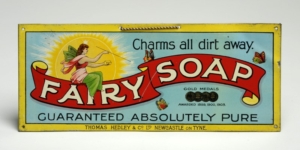
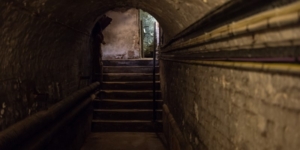
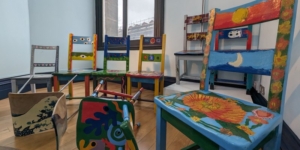


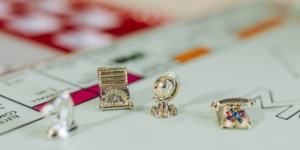 Tom Martin
Tom Martin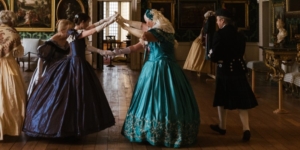


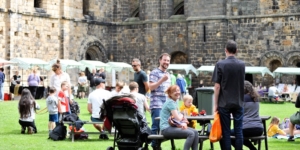
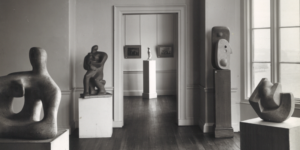
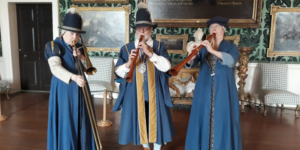
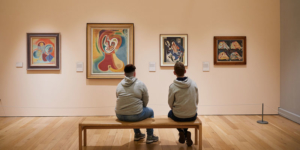


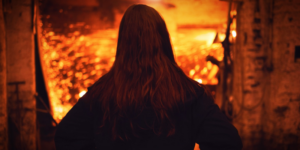

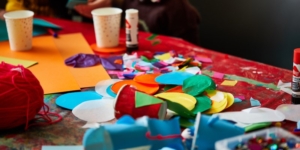
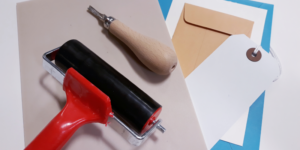
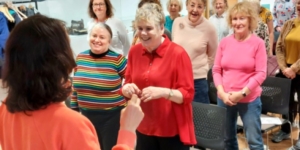
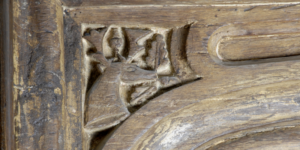
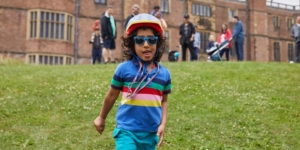
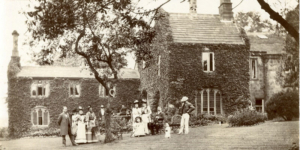
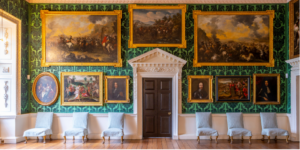
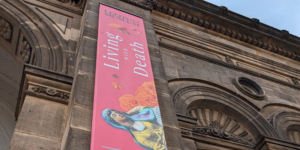
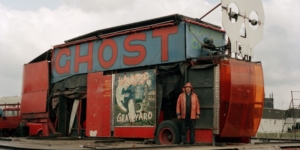
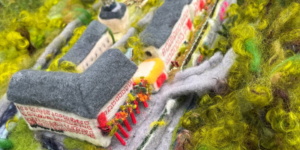
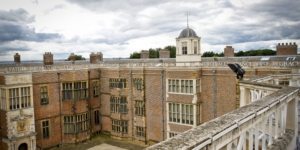

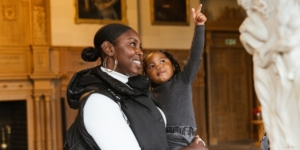
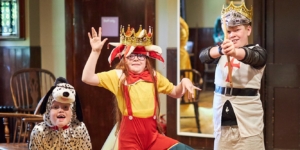

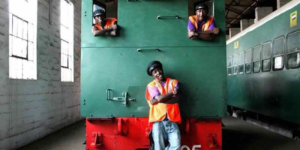
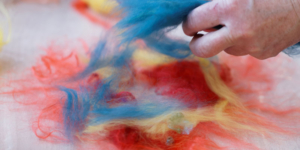

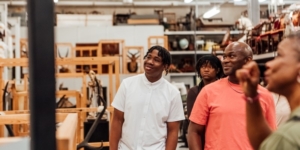
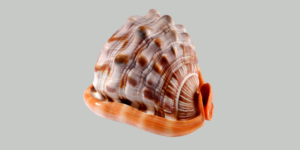
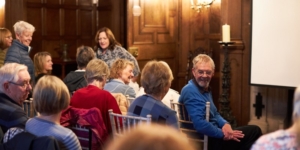
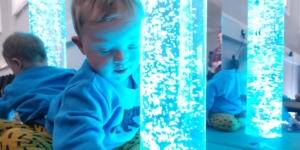
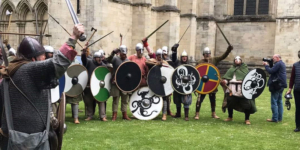

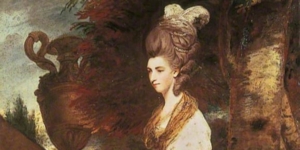
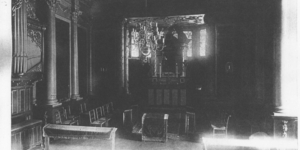
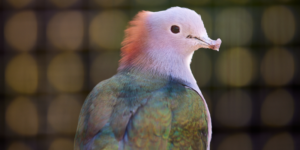
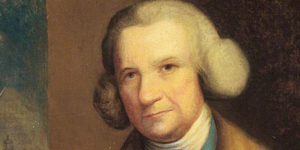
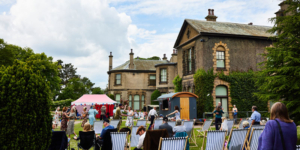
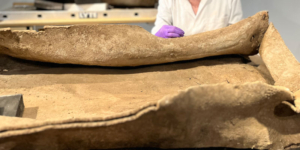
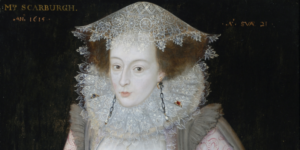

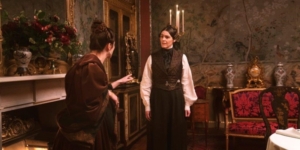 Aimee Spinks copyright lookout Point - HBO
Aimee Spinks copyright lookout Point - HBO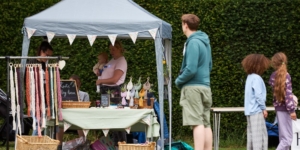
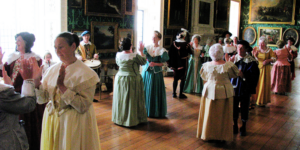


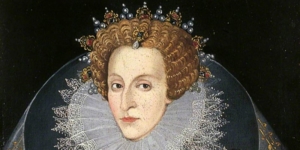
 Burley Banksy
Burley Banksy